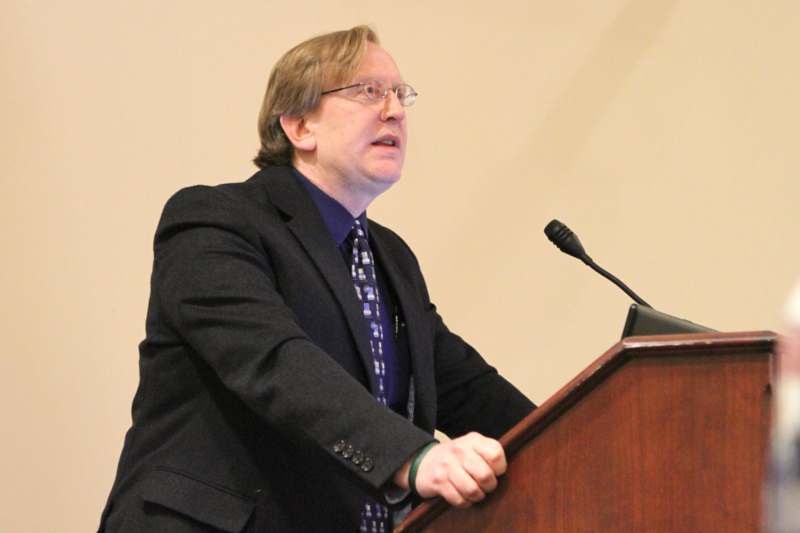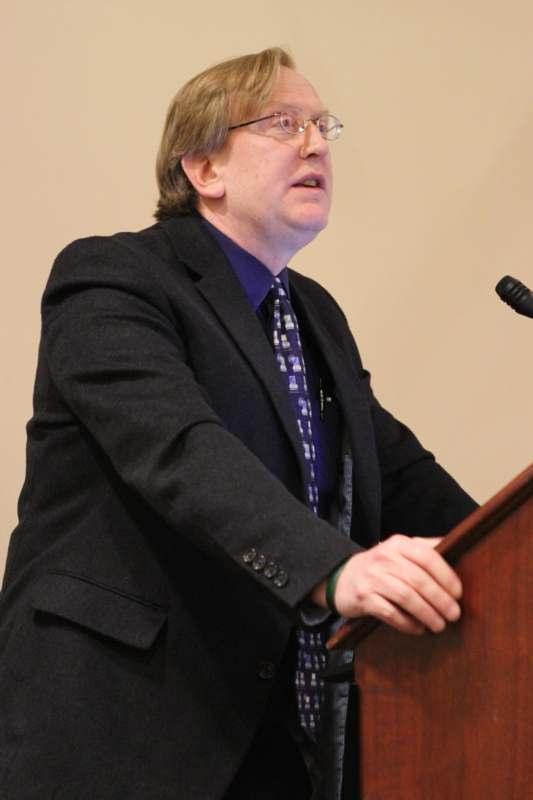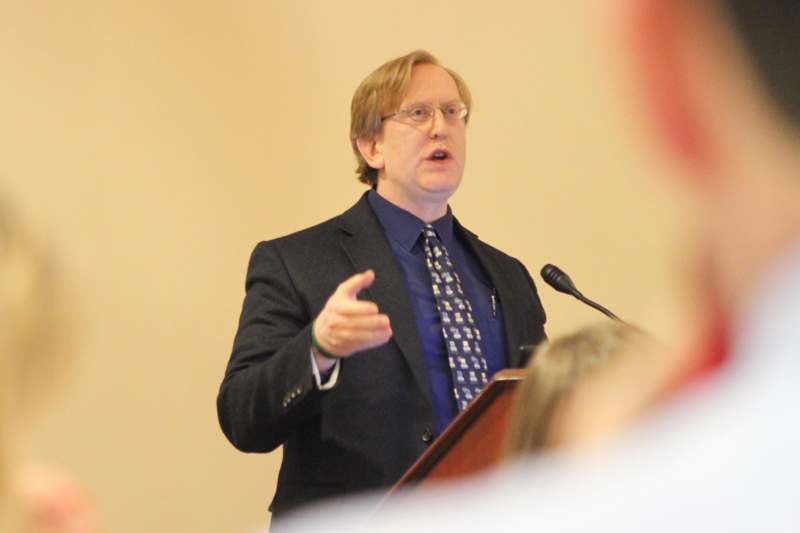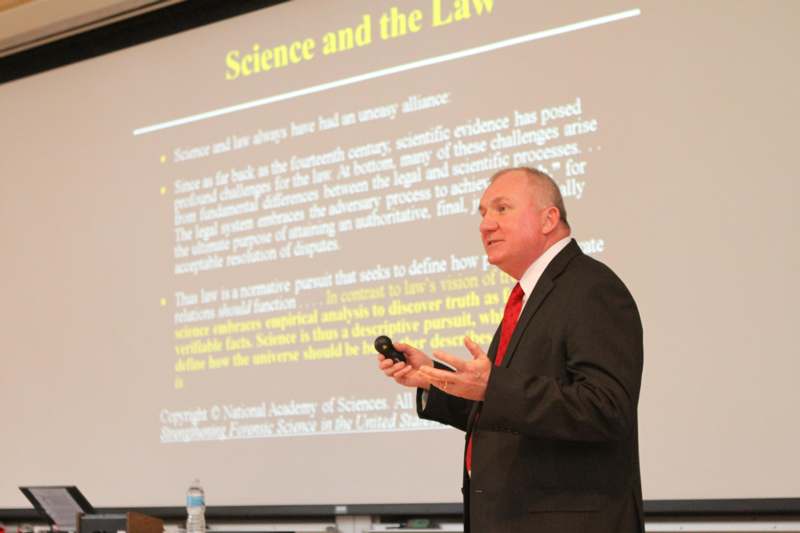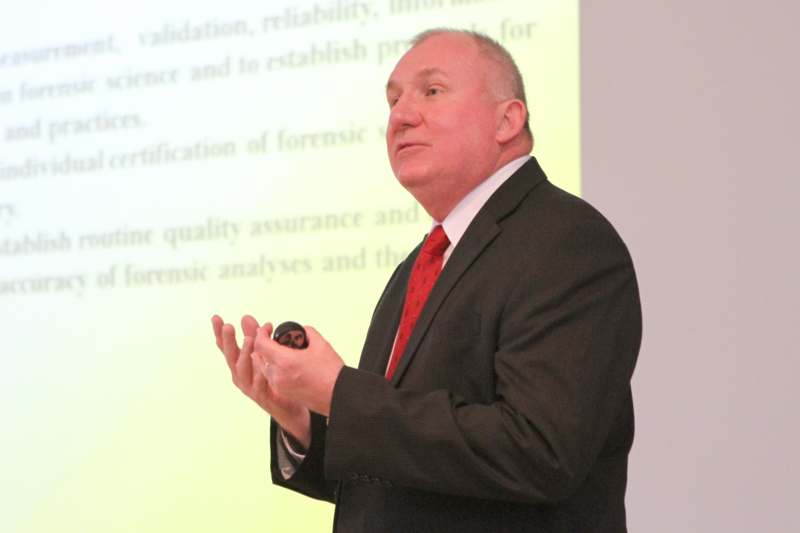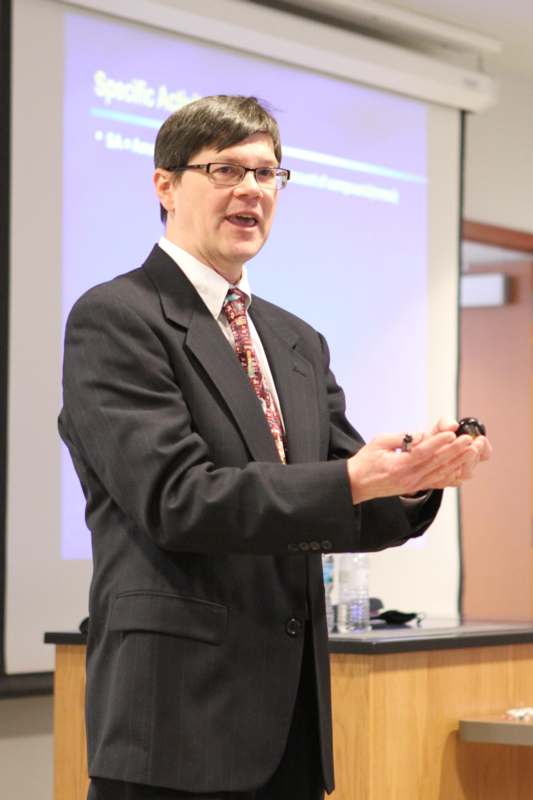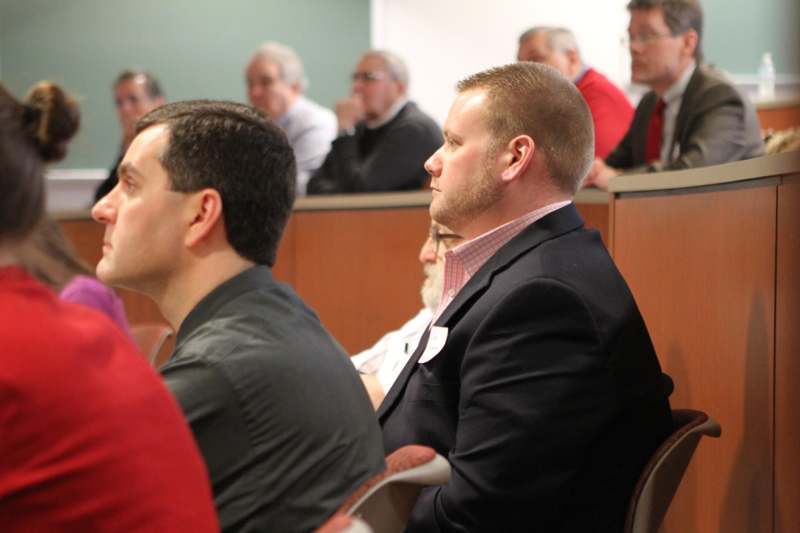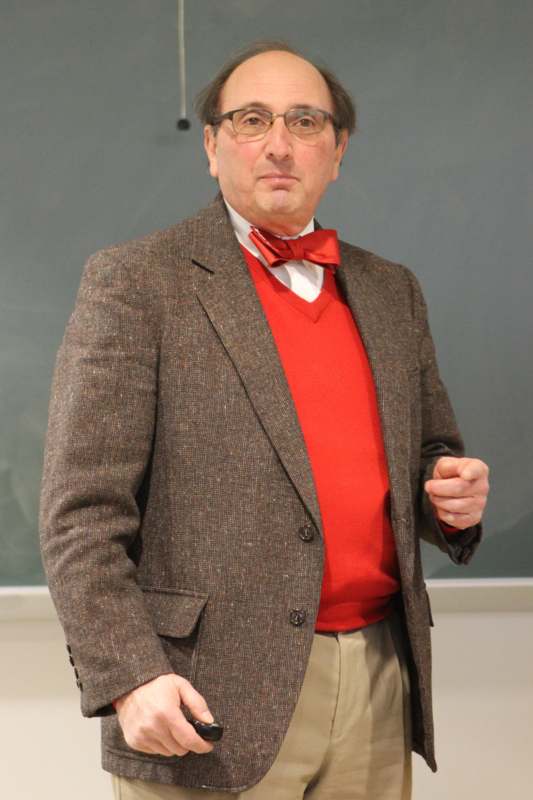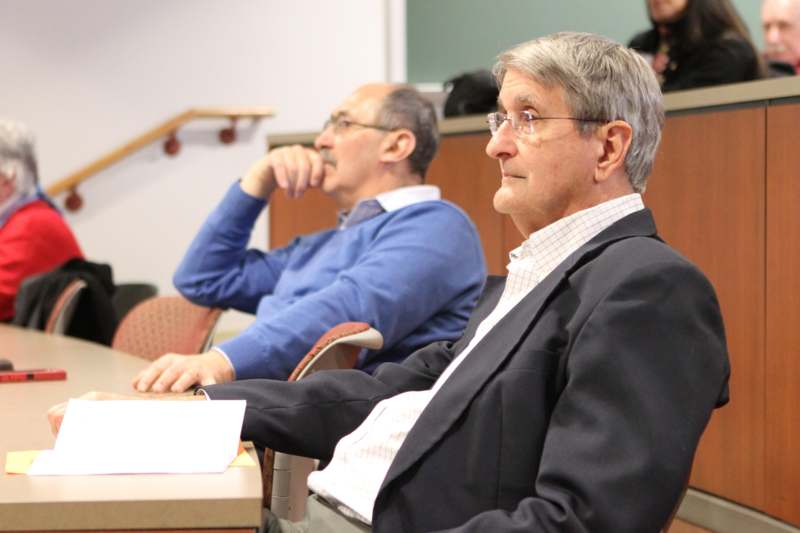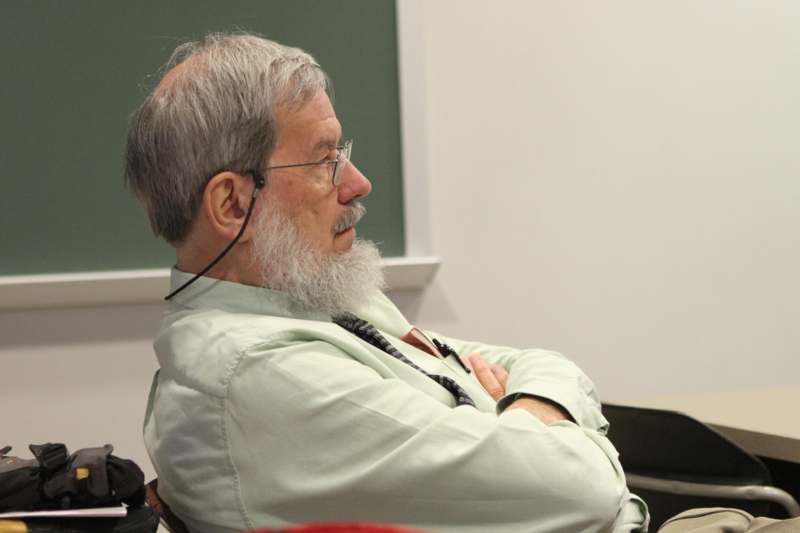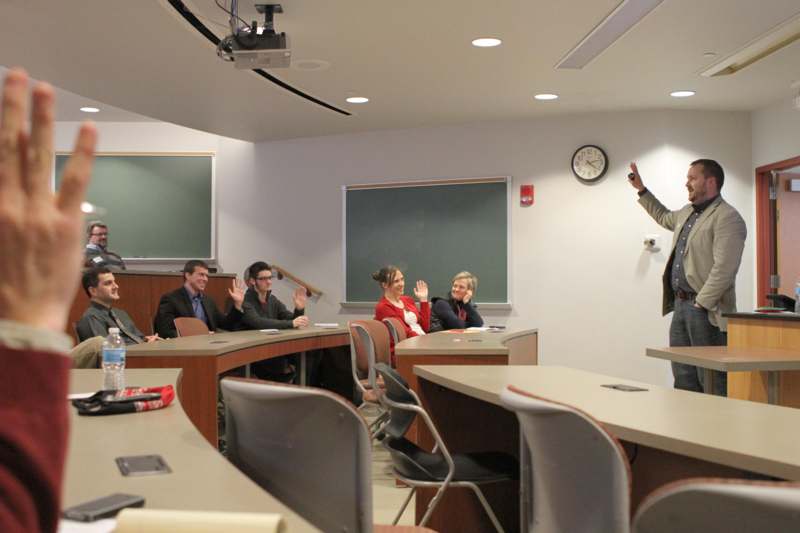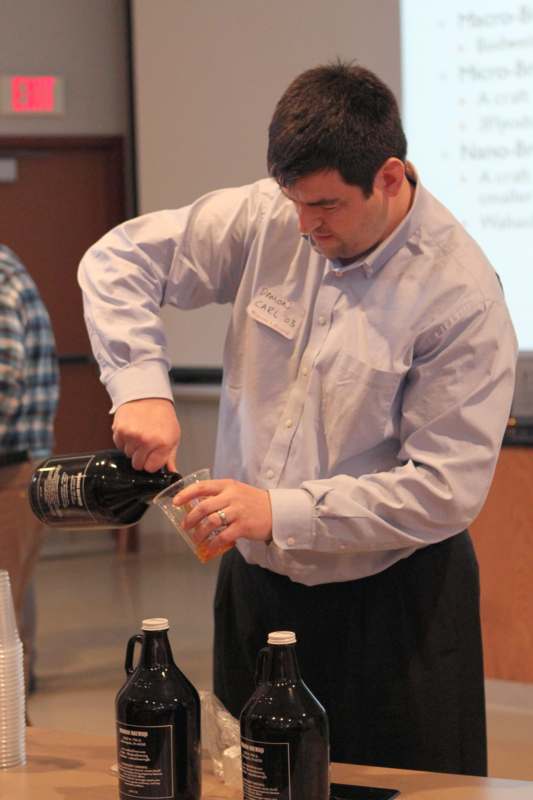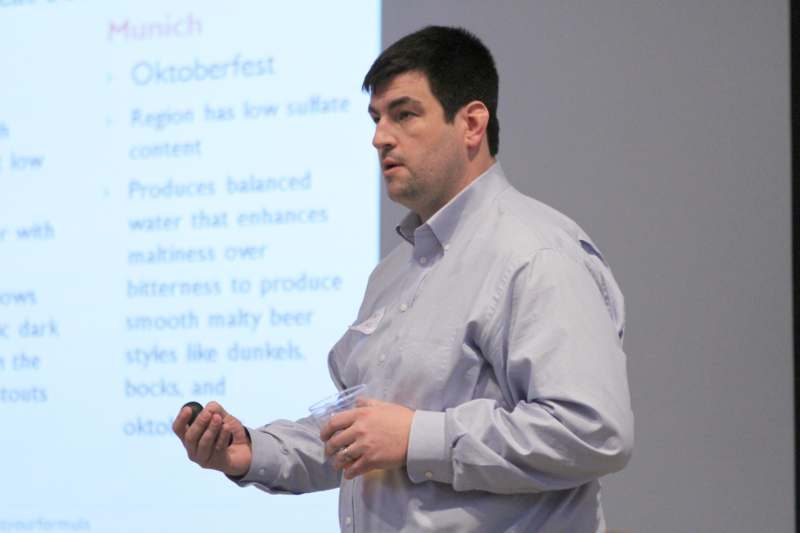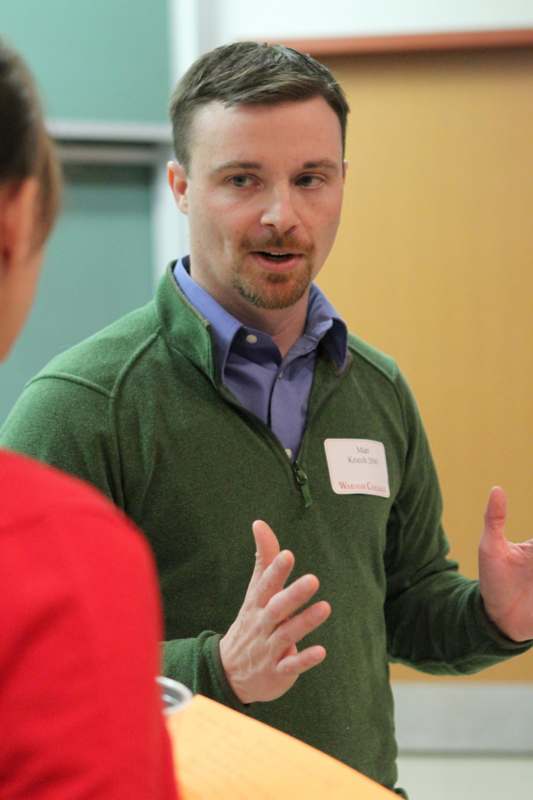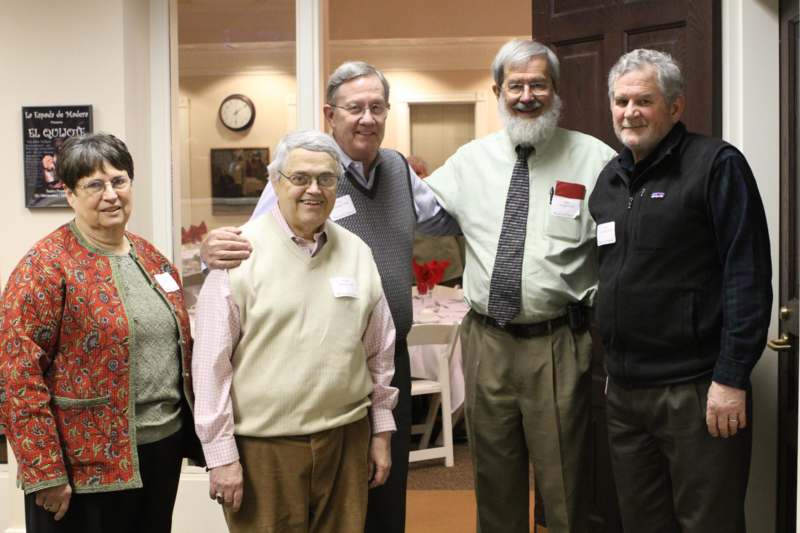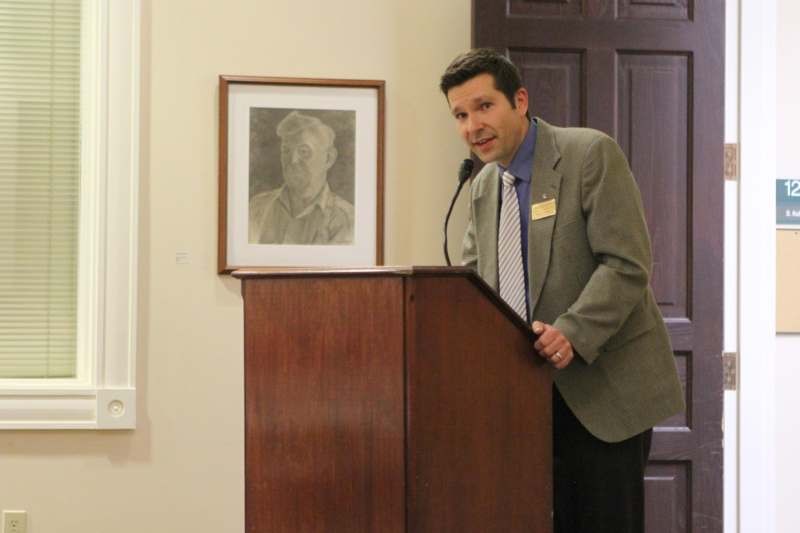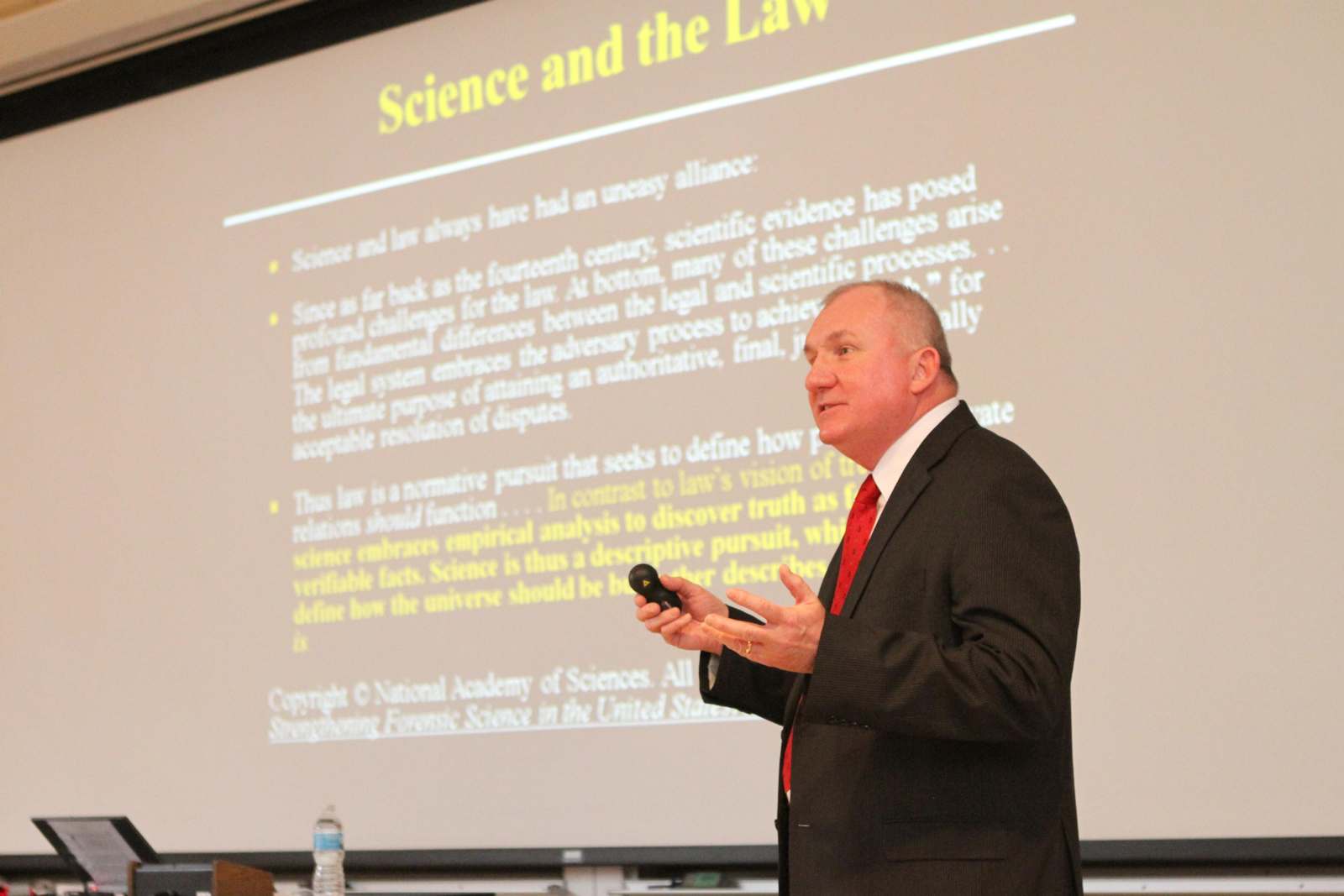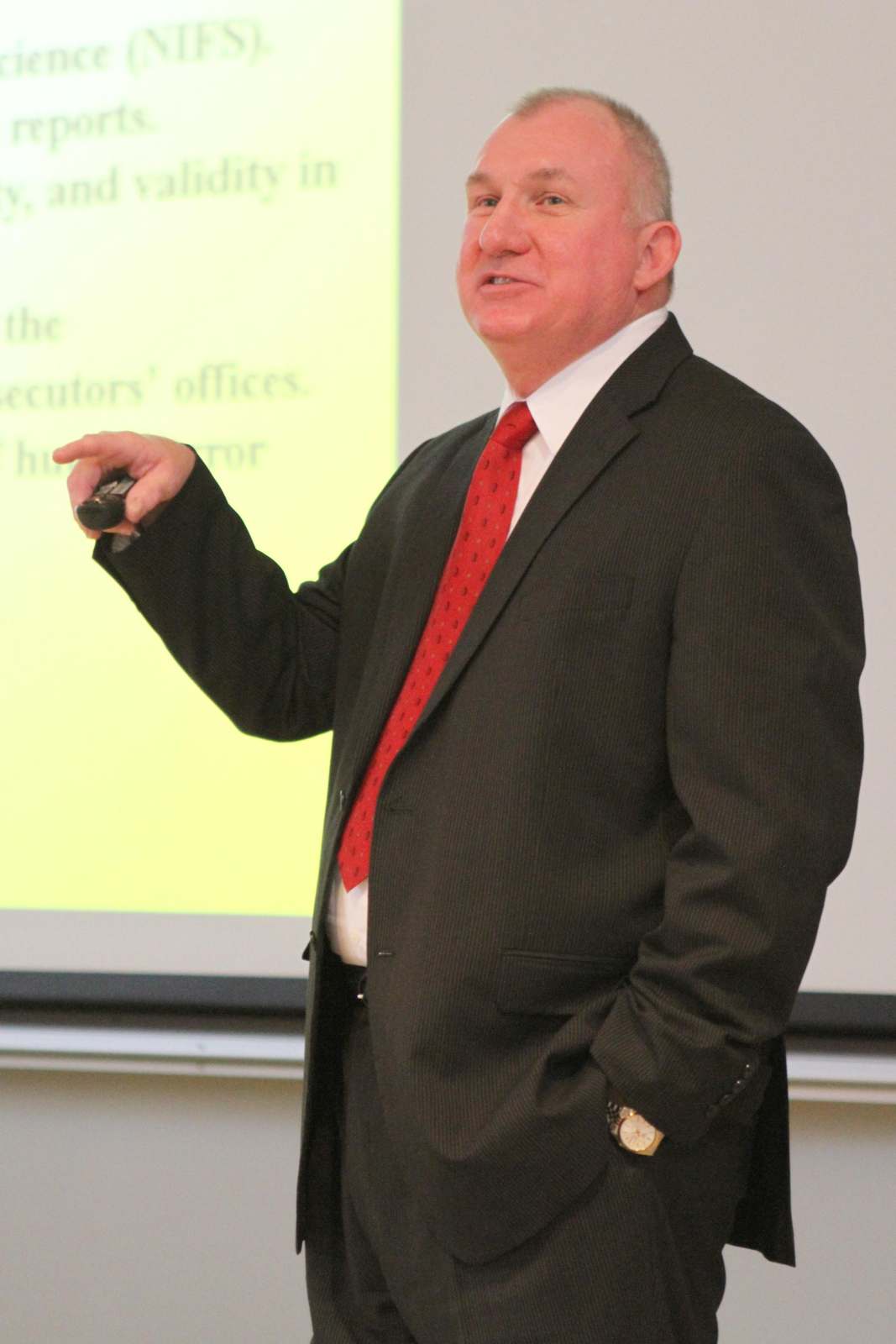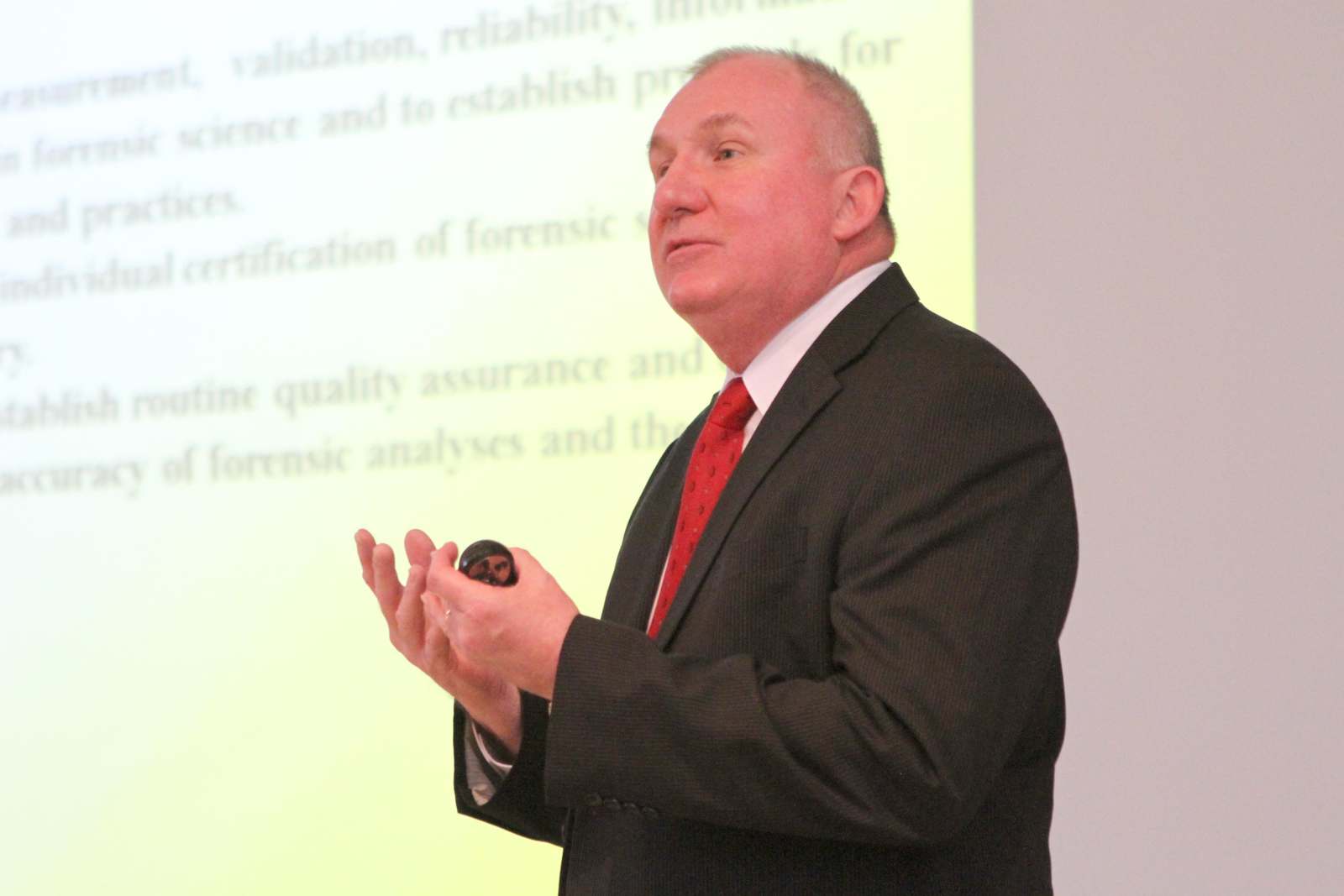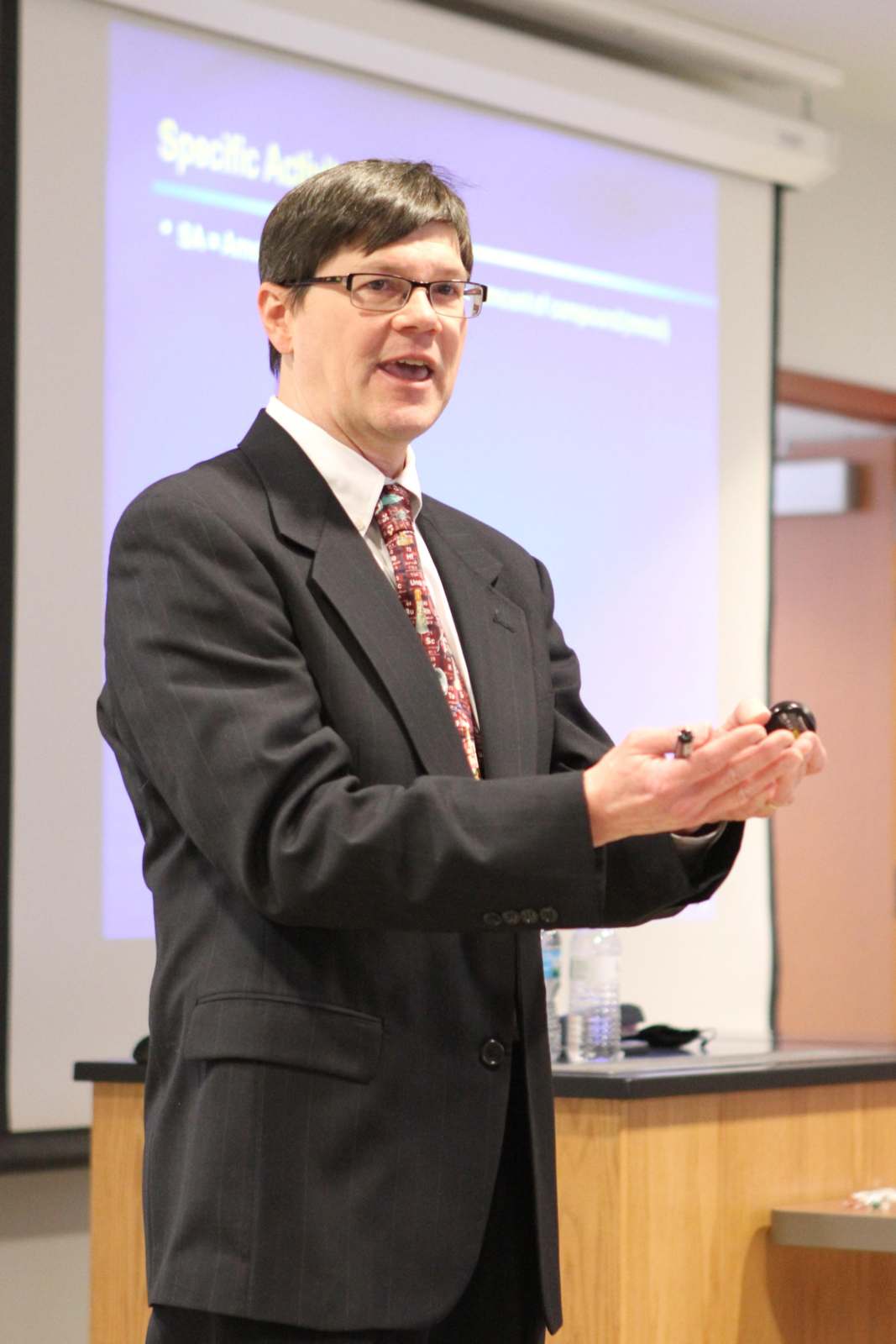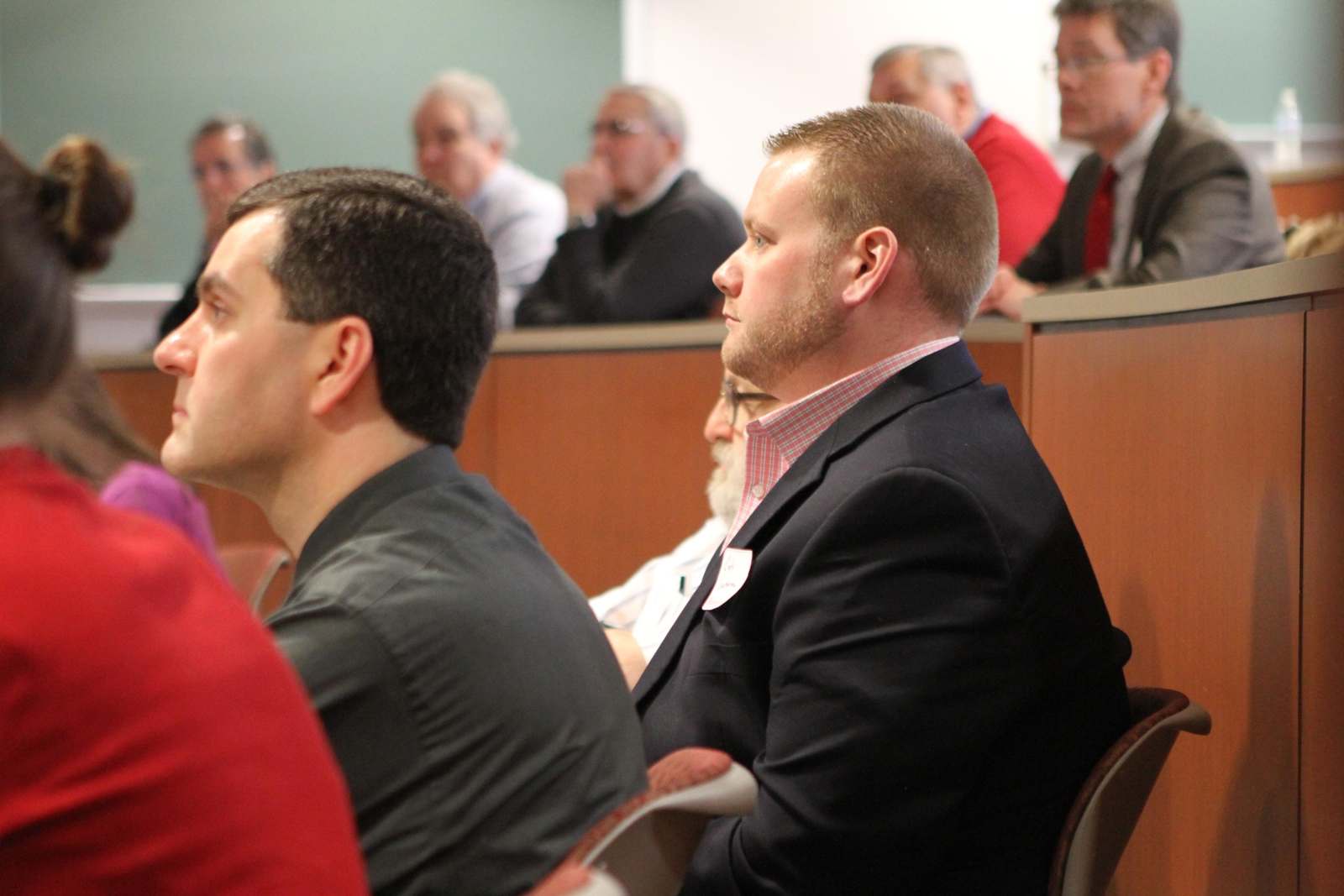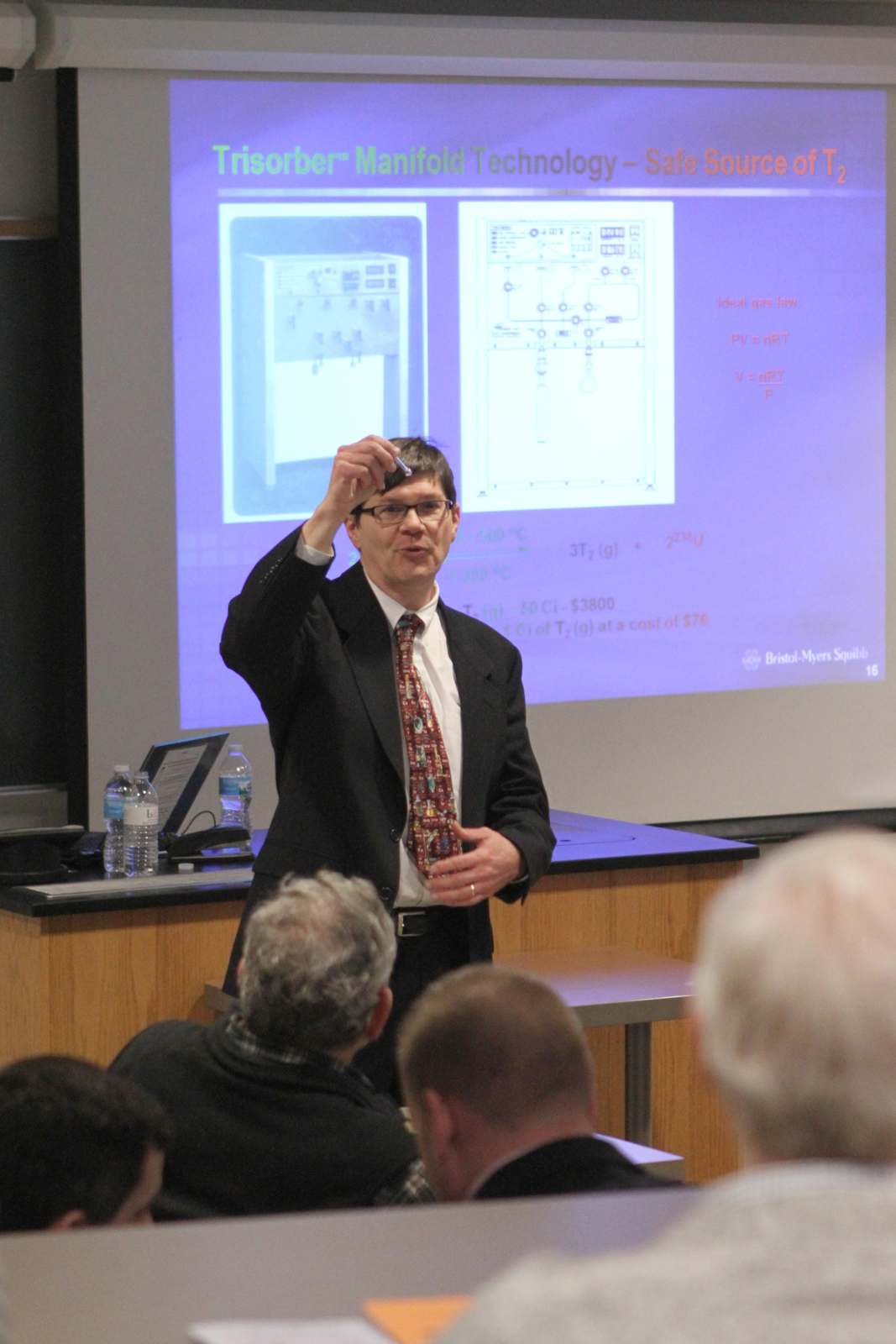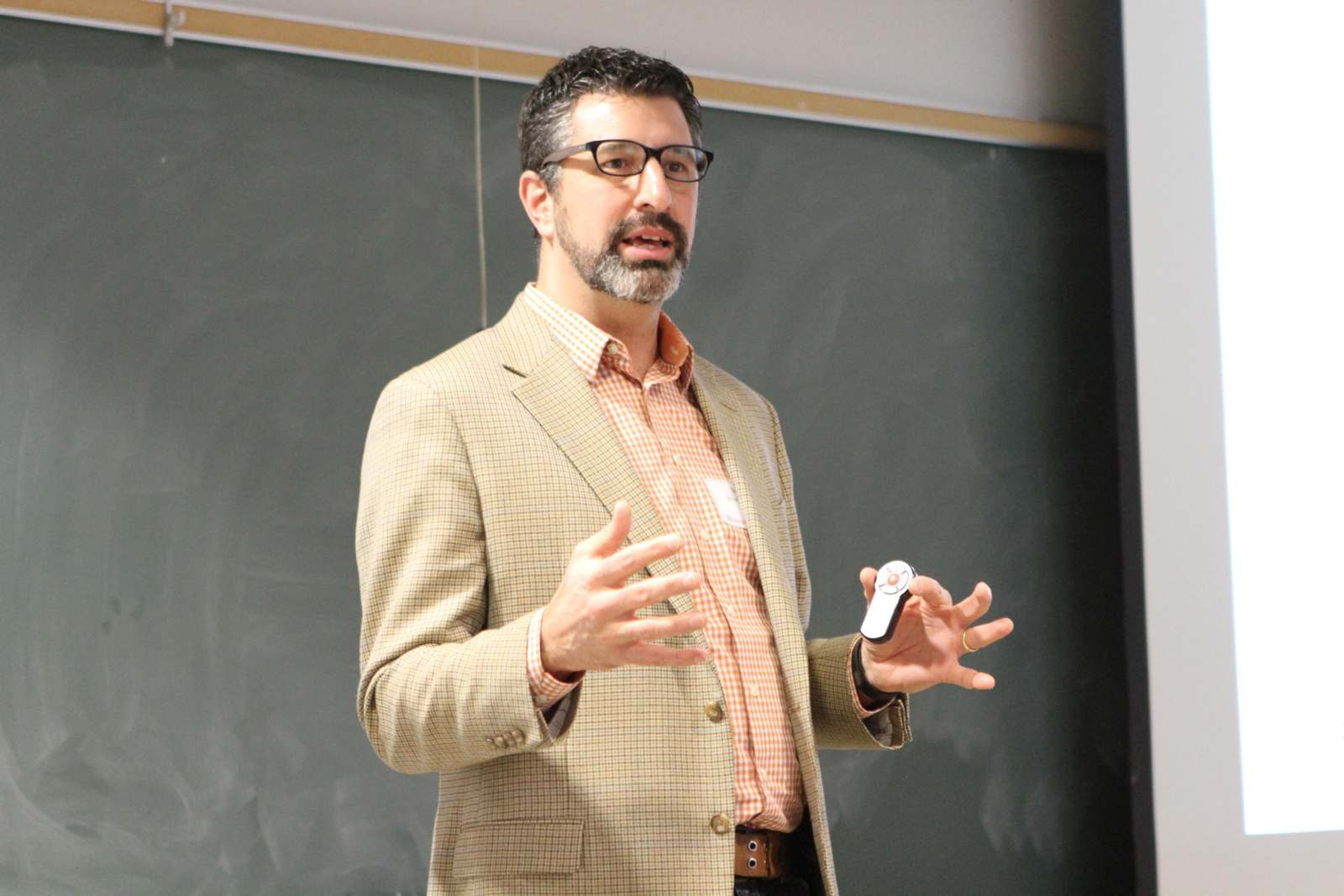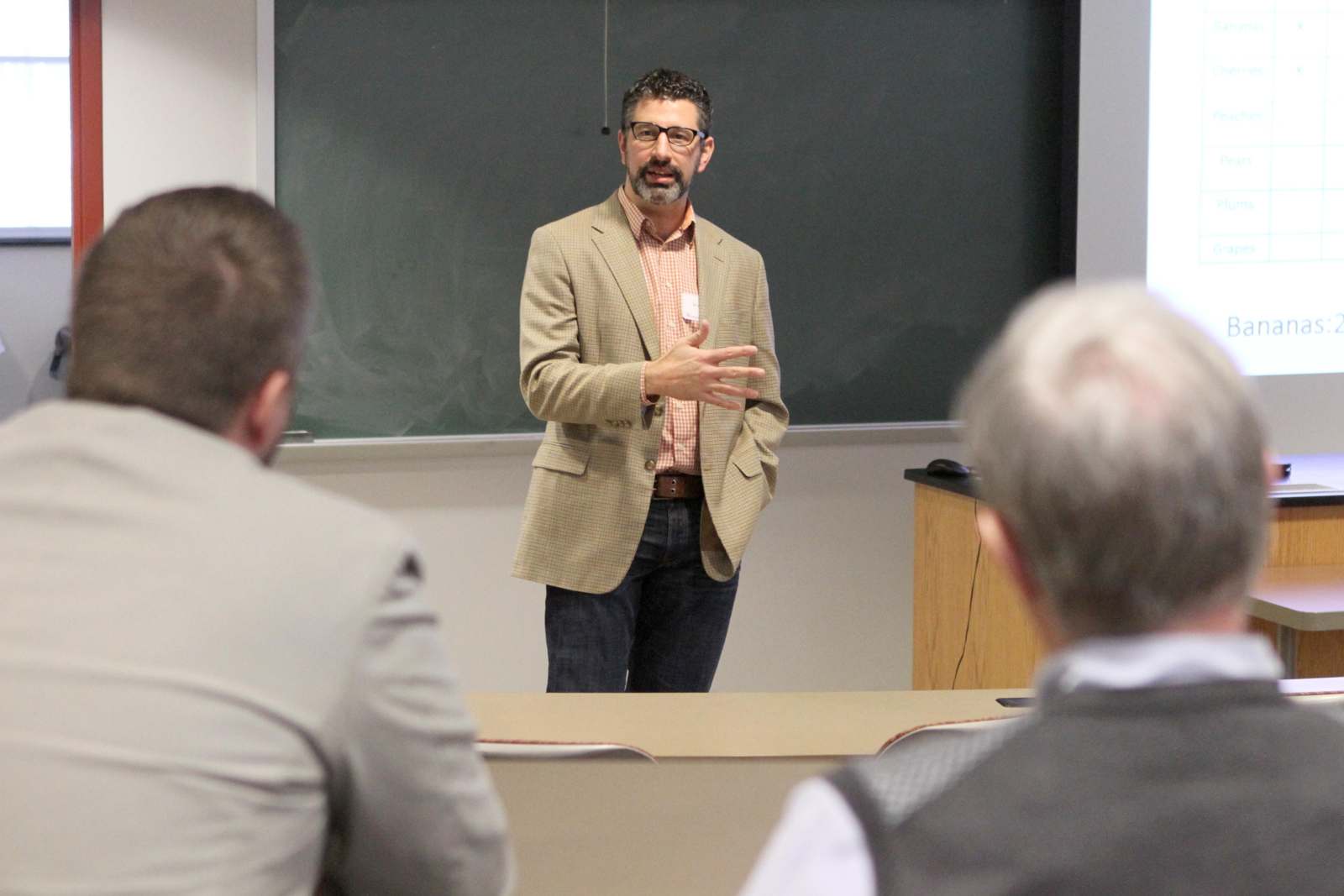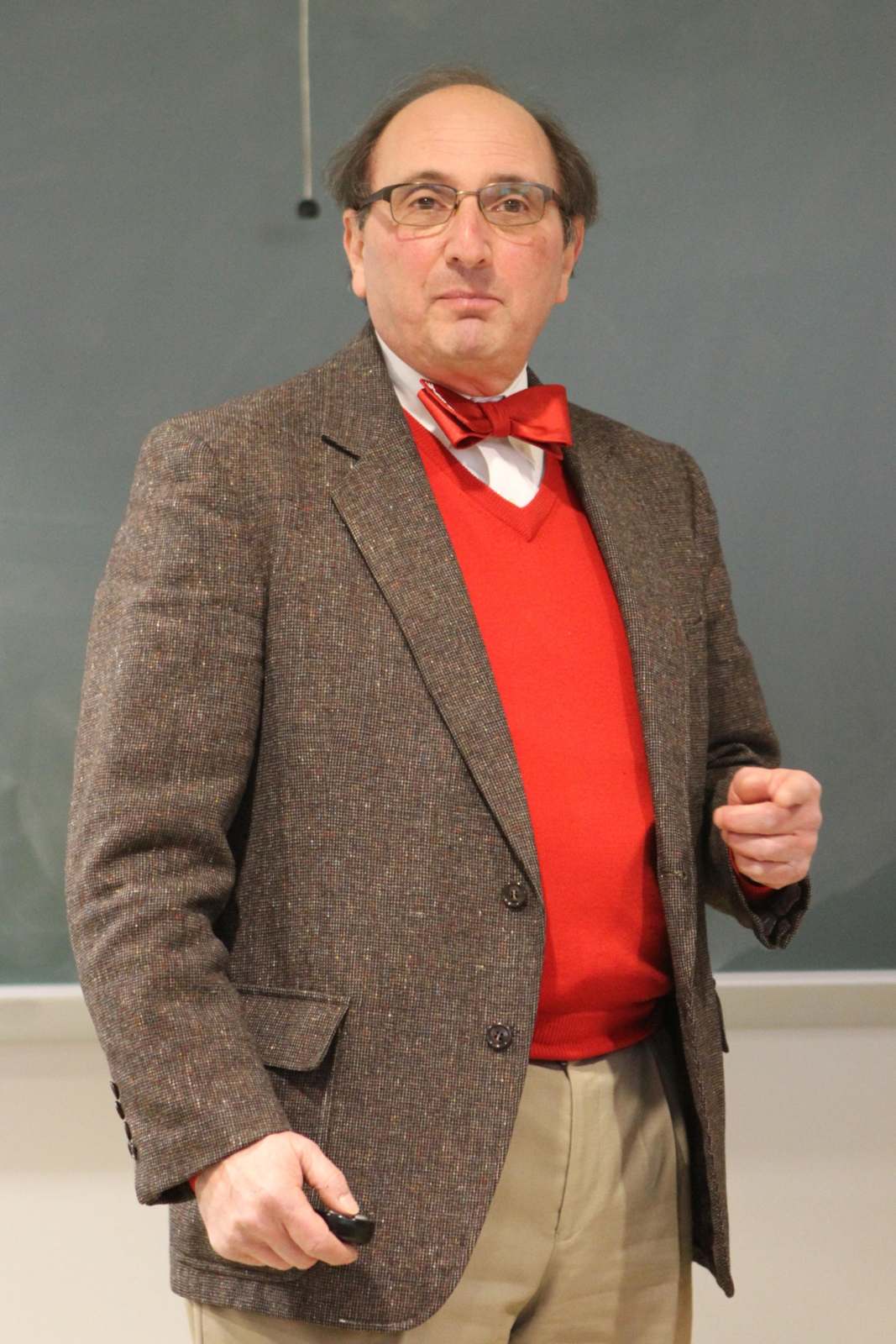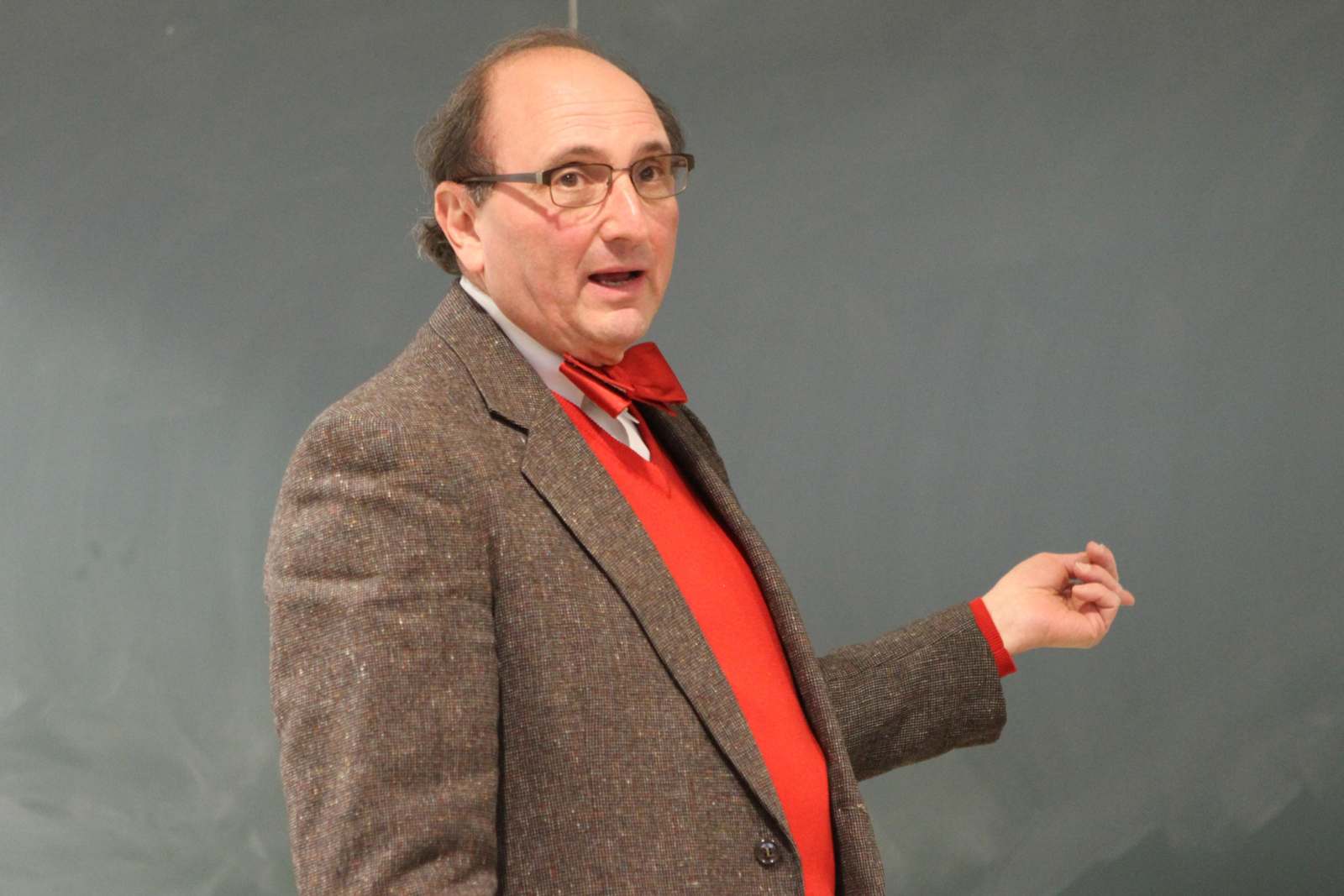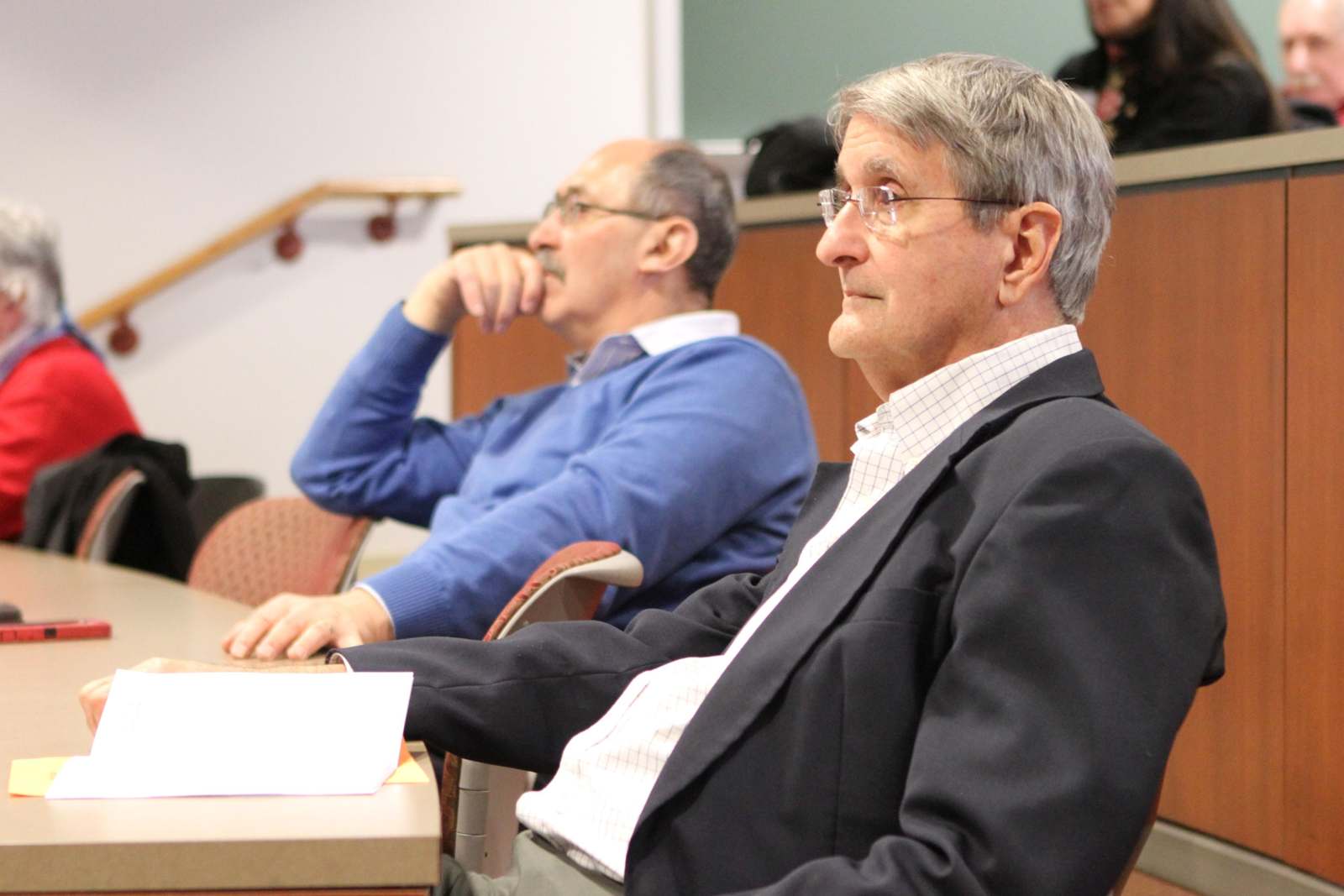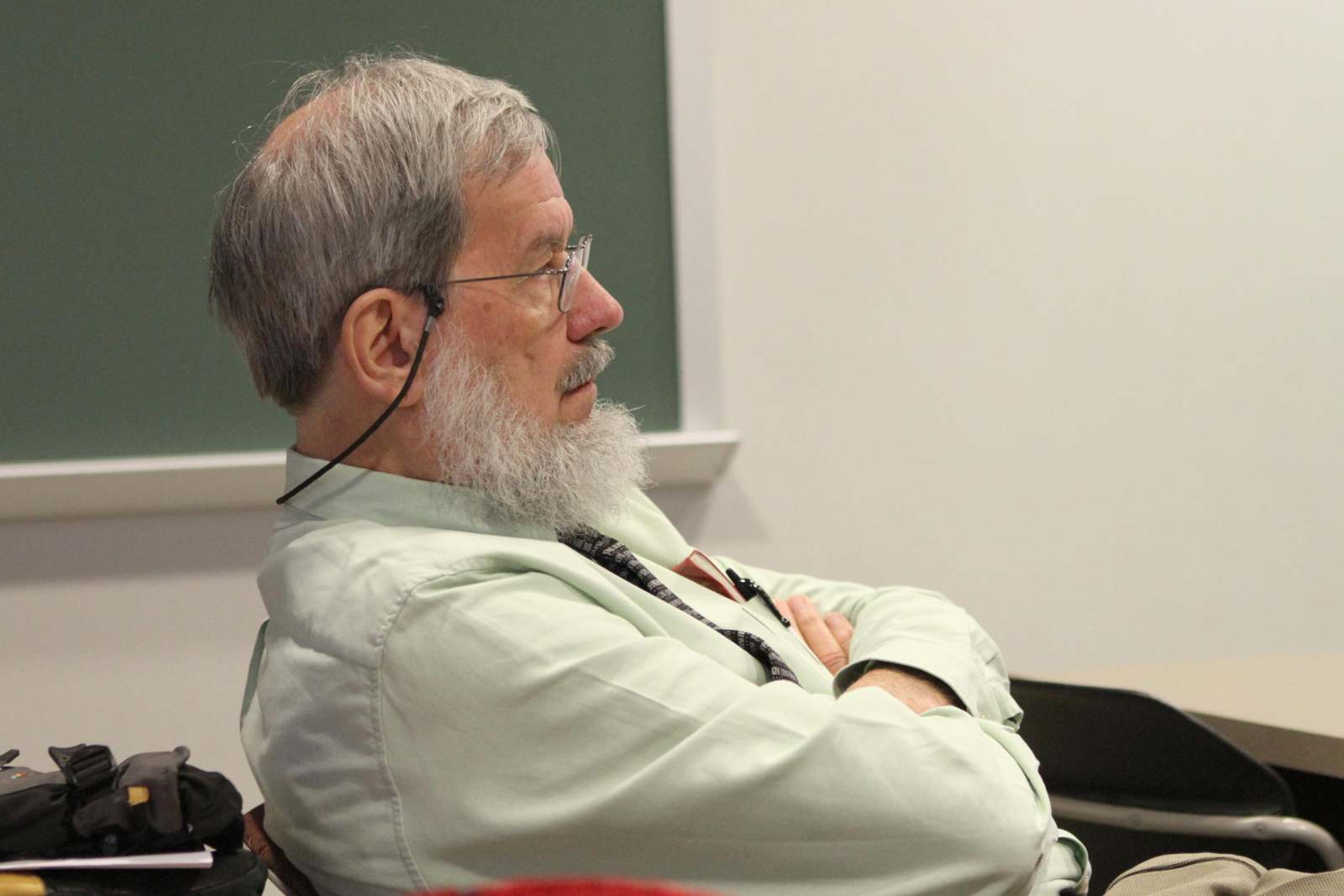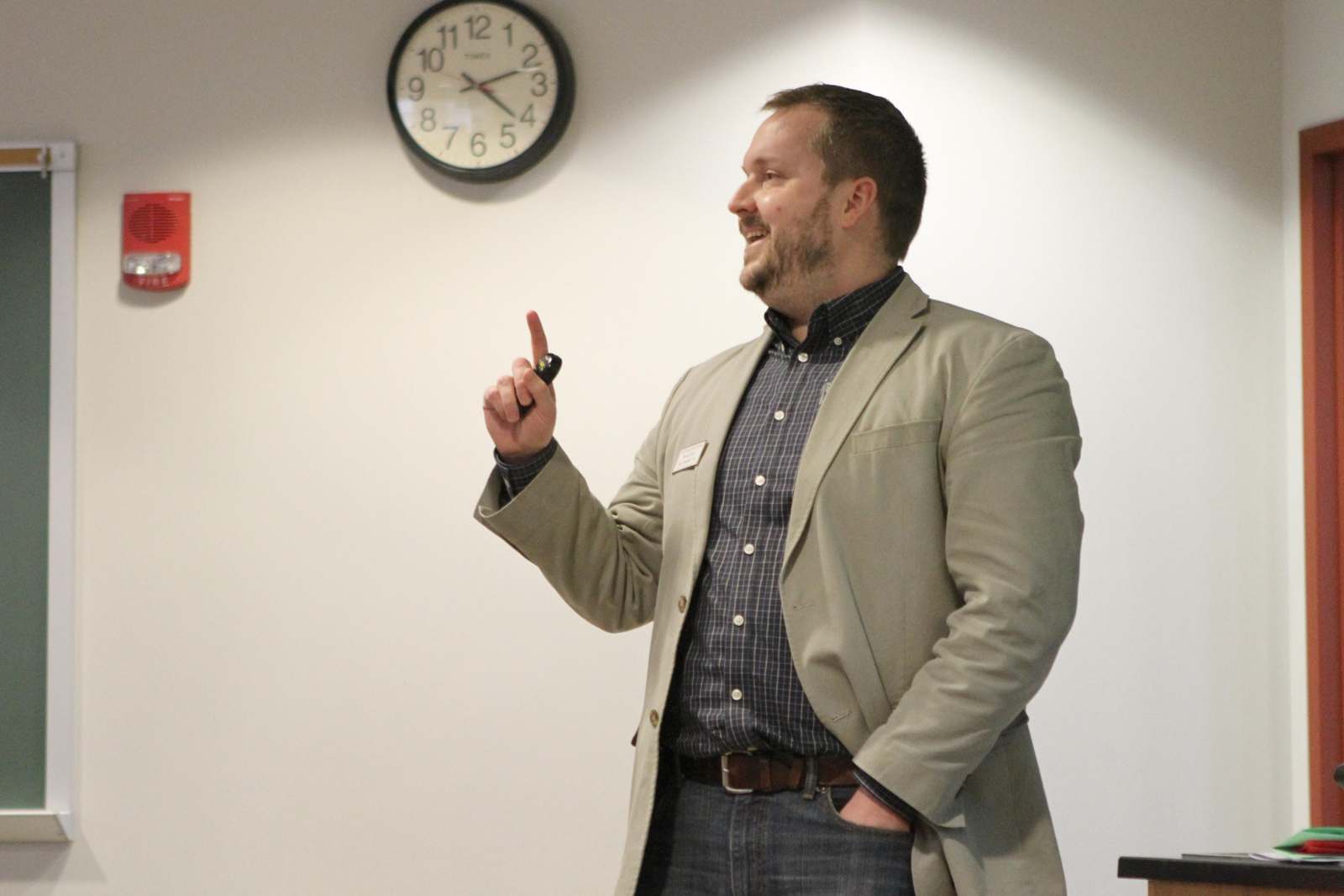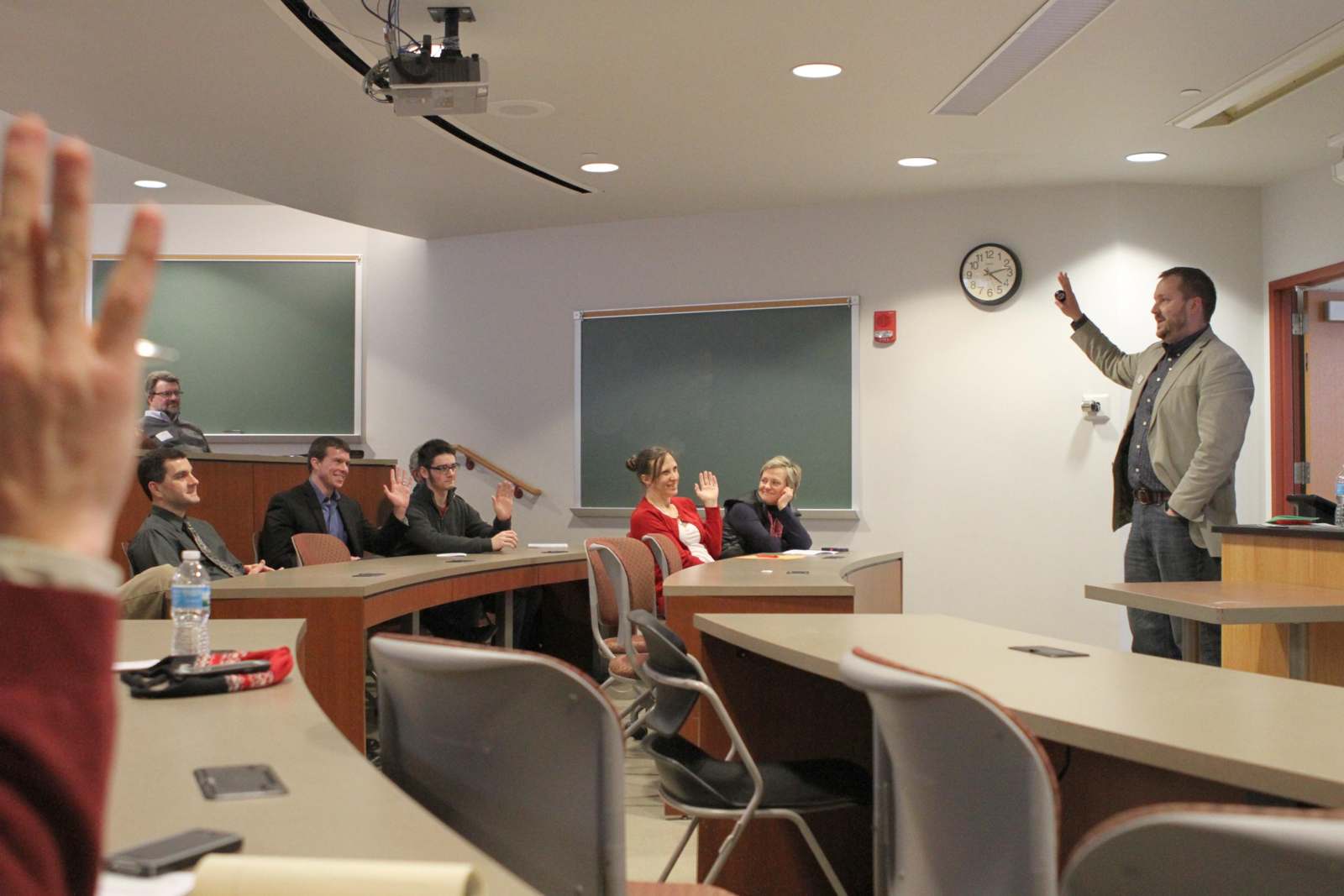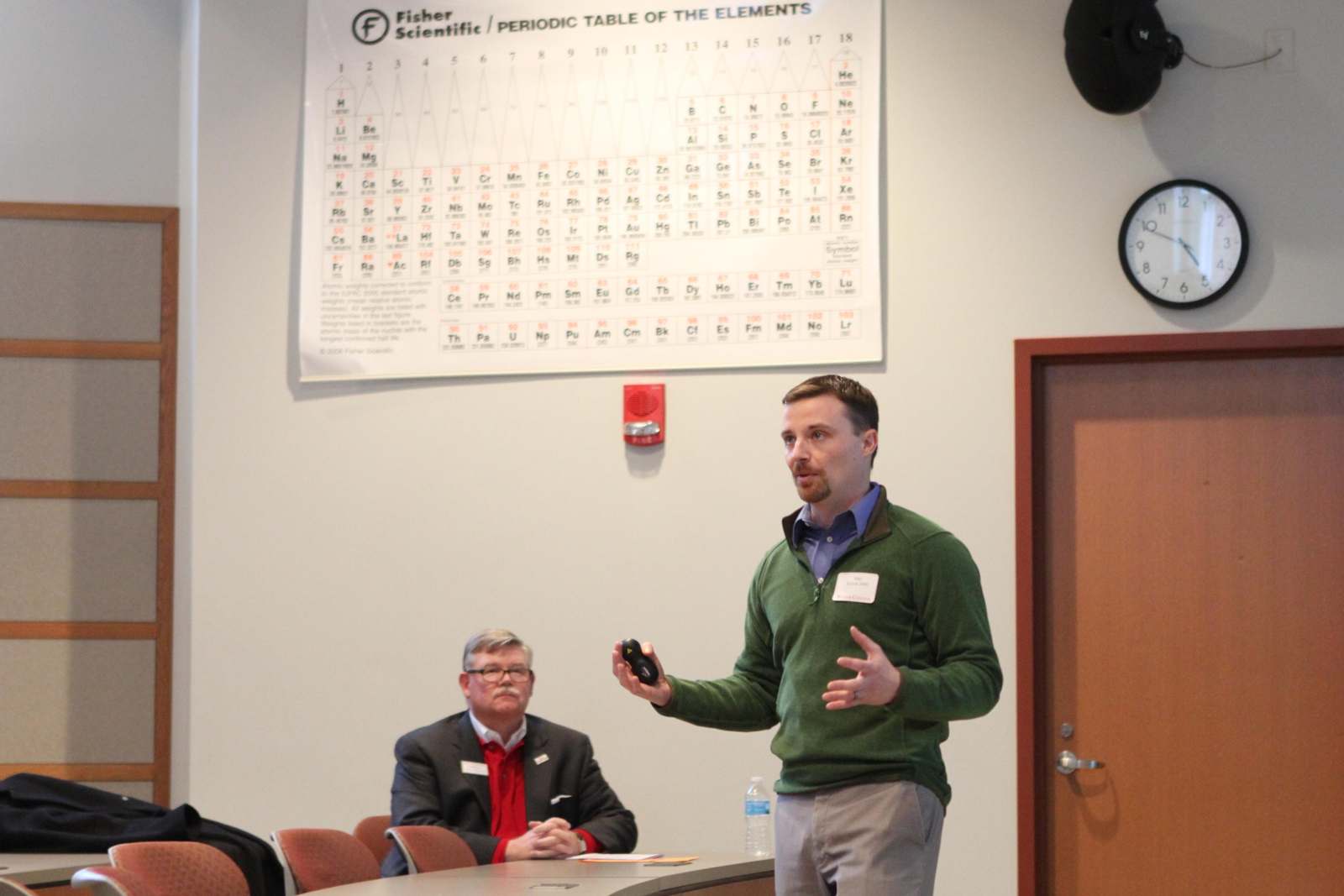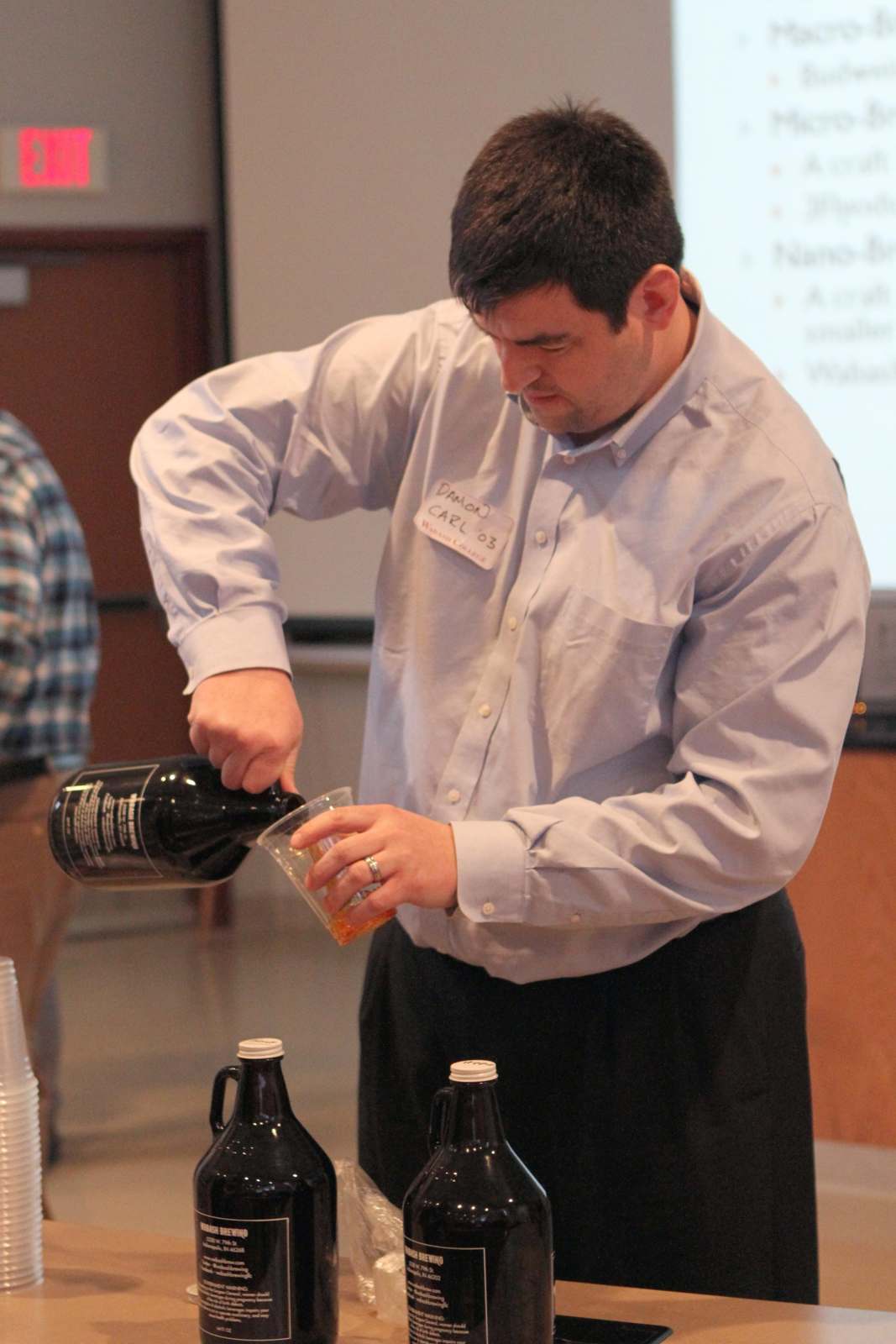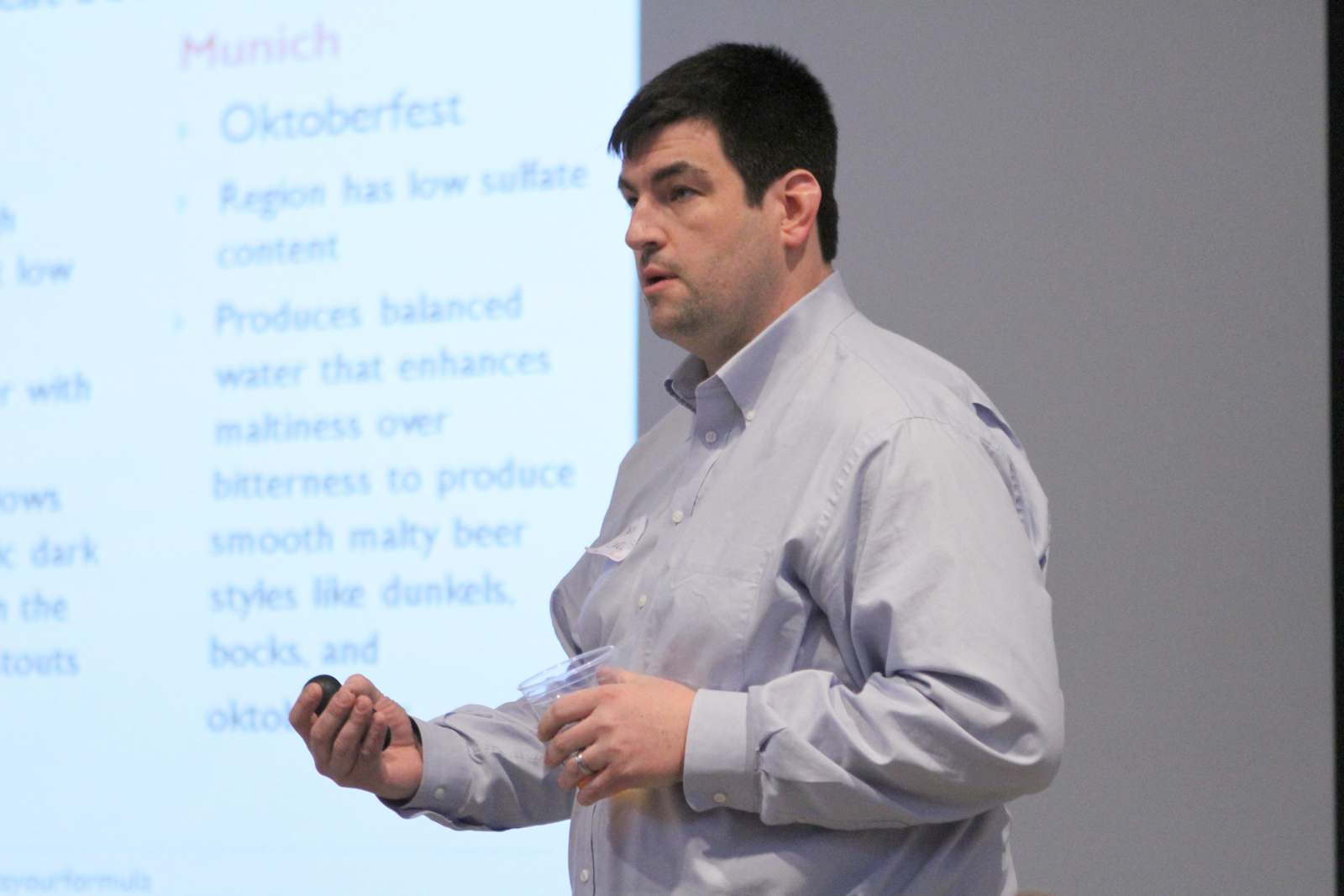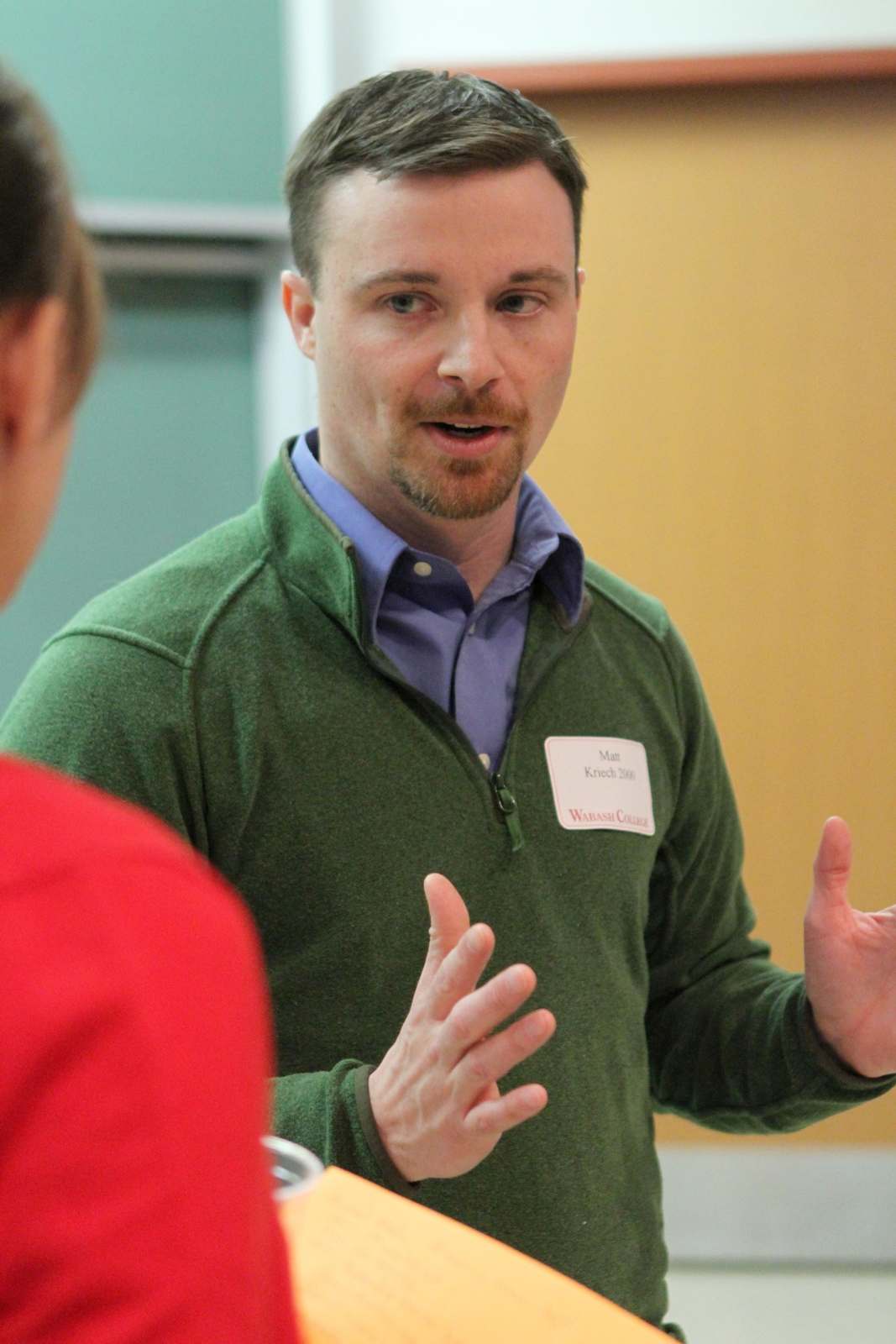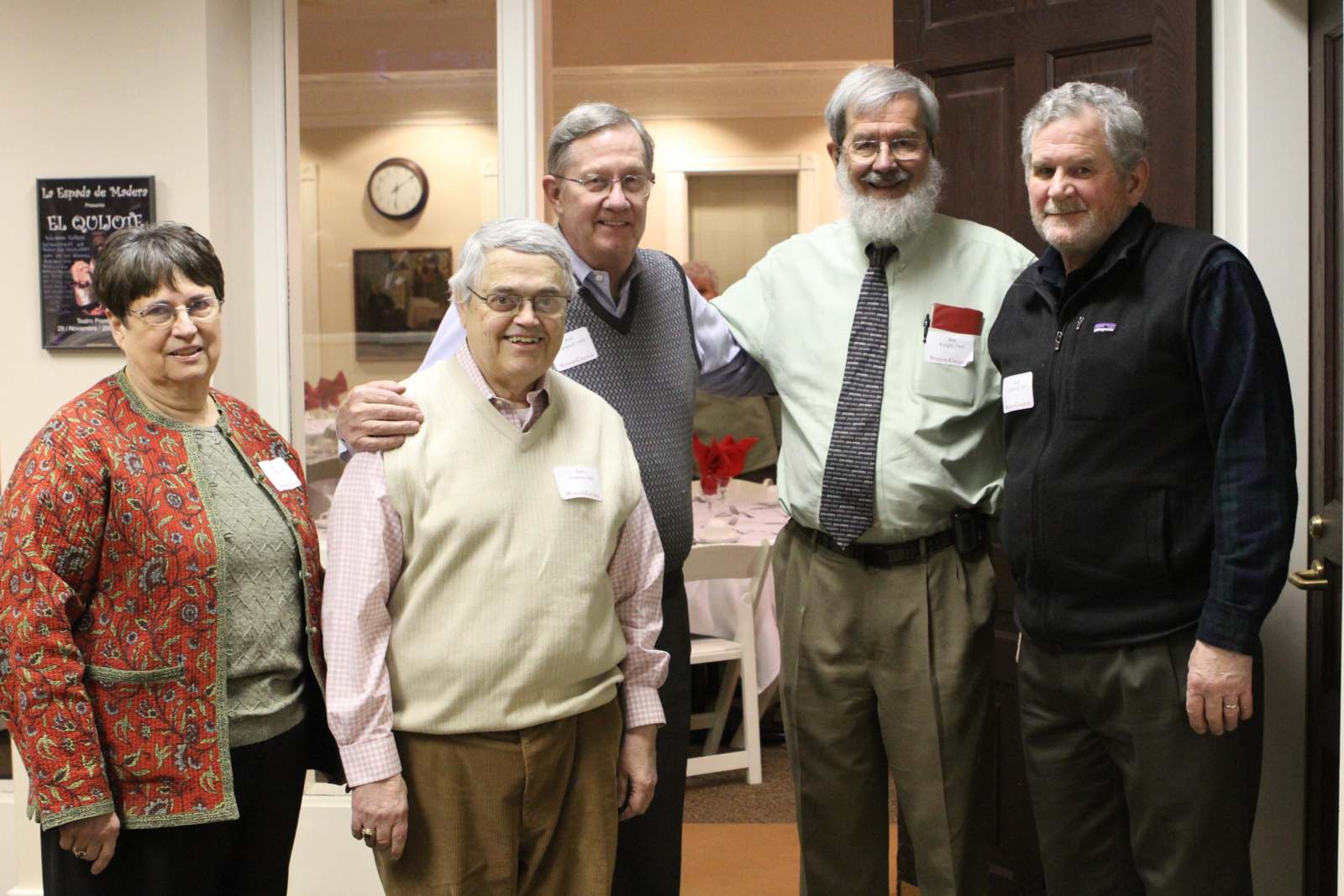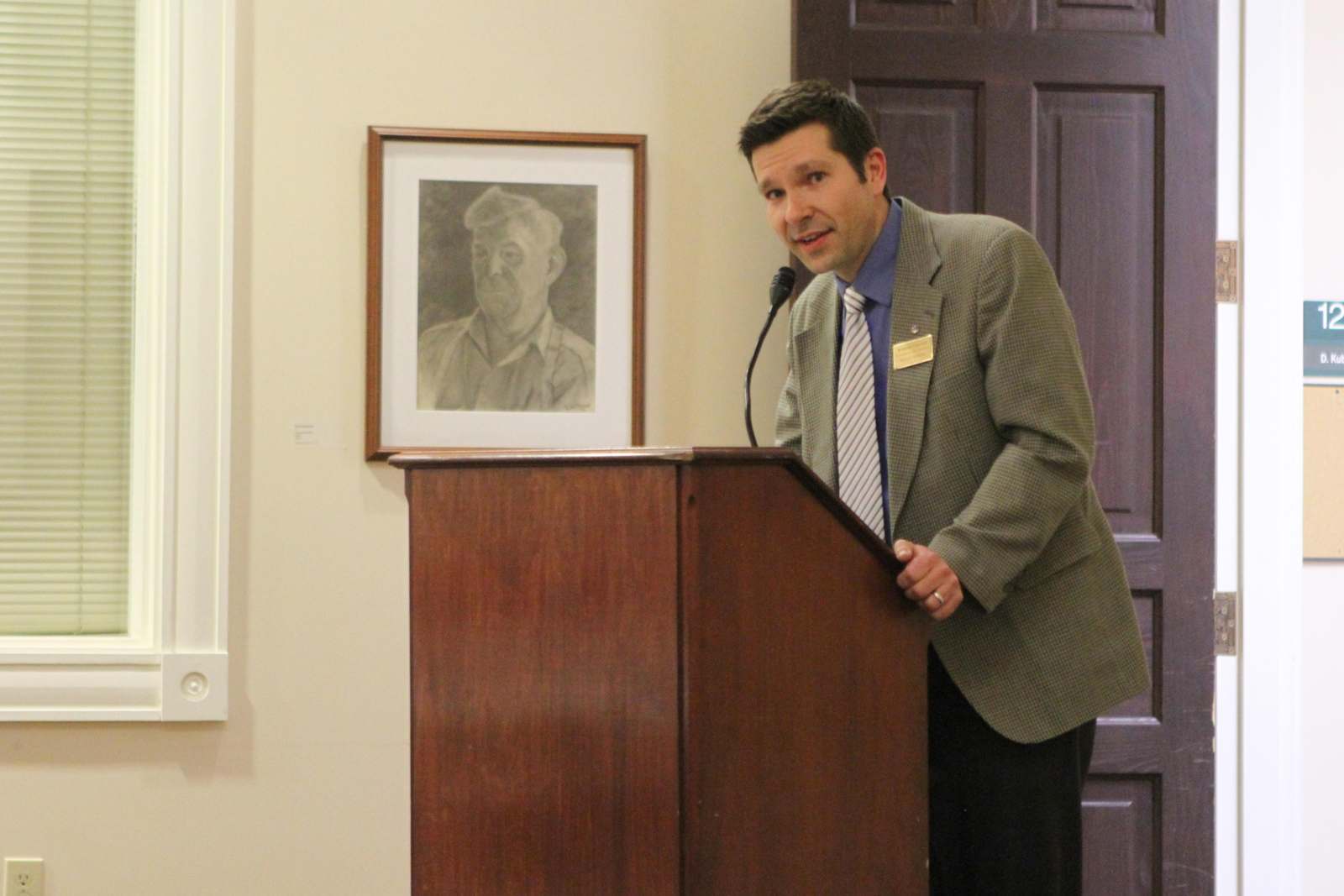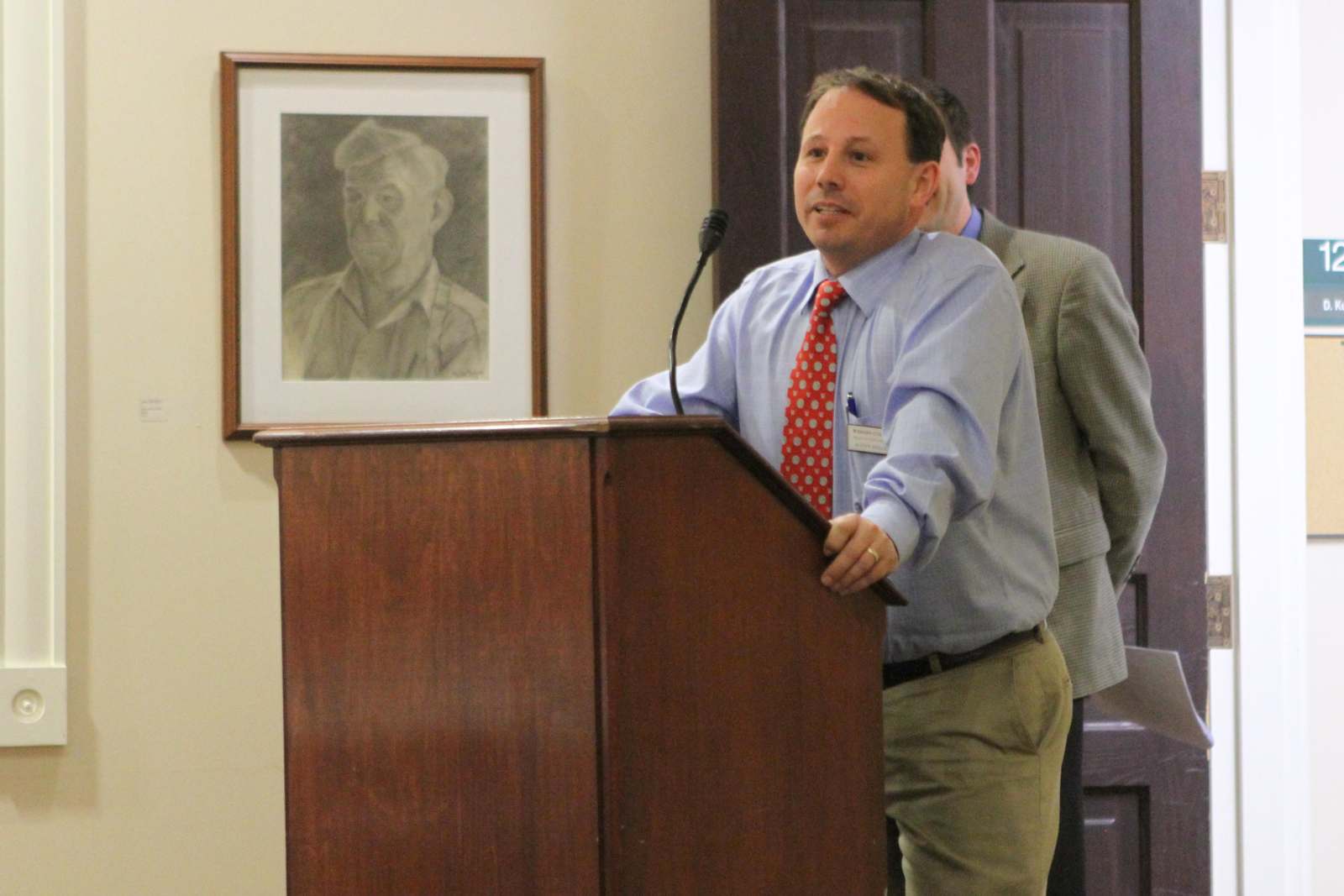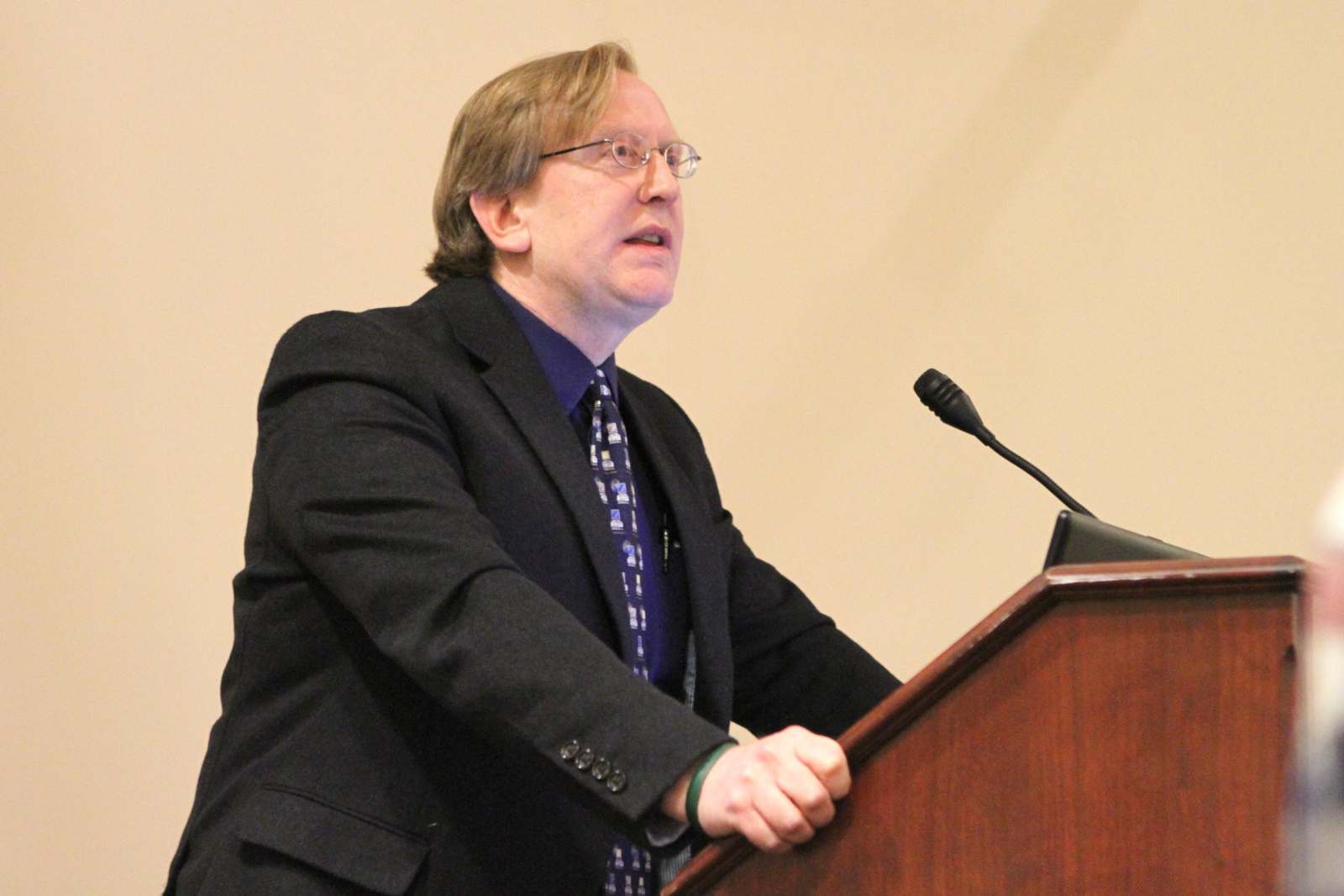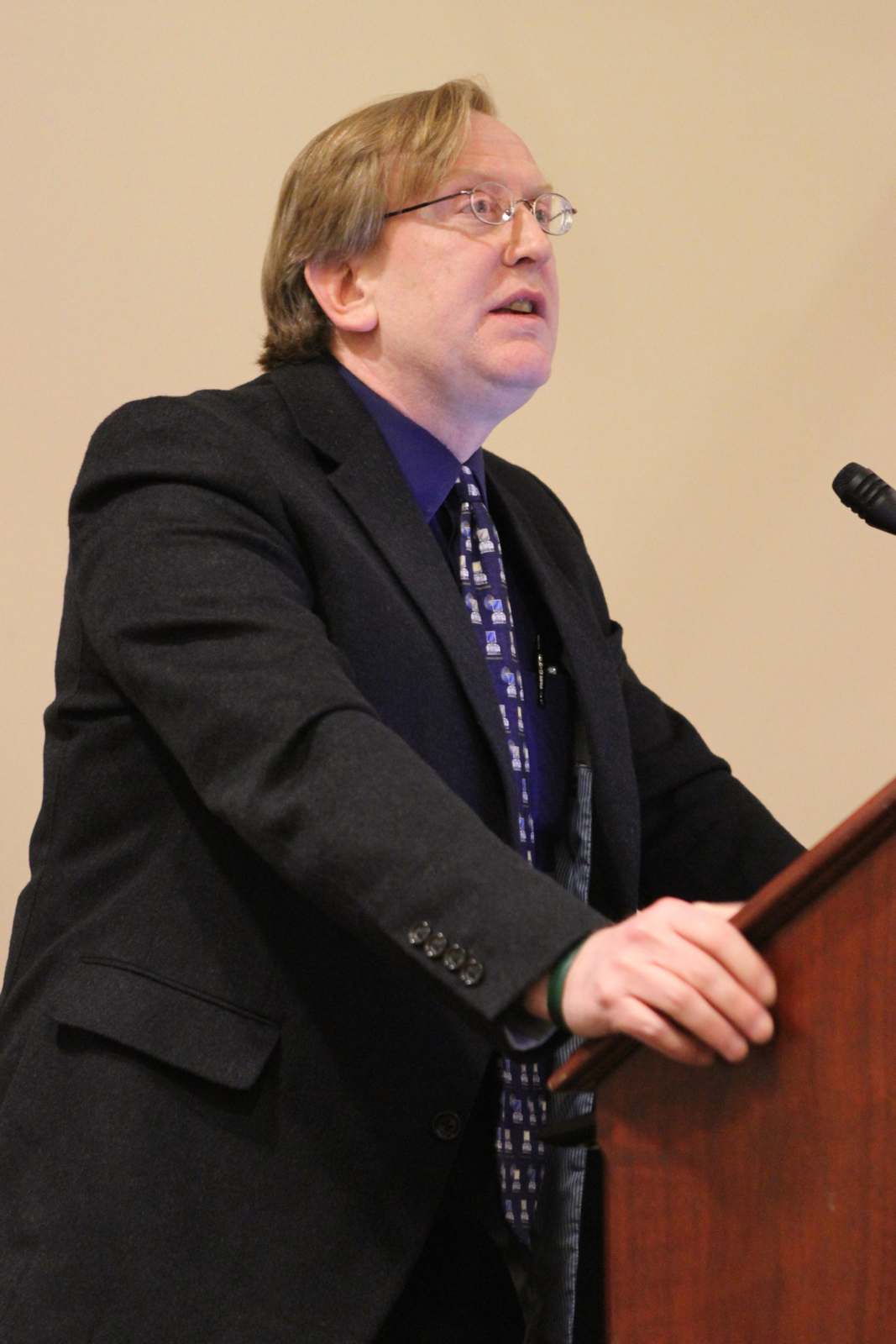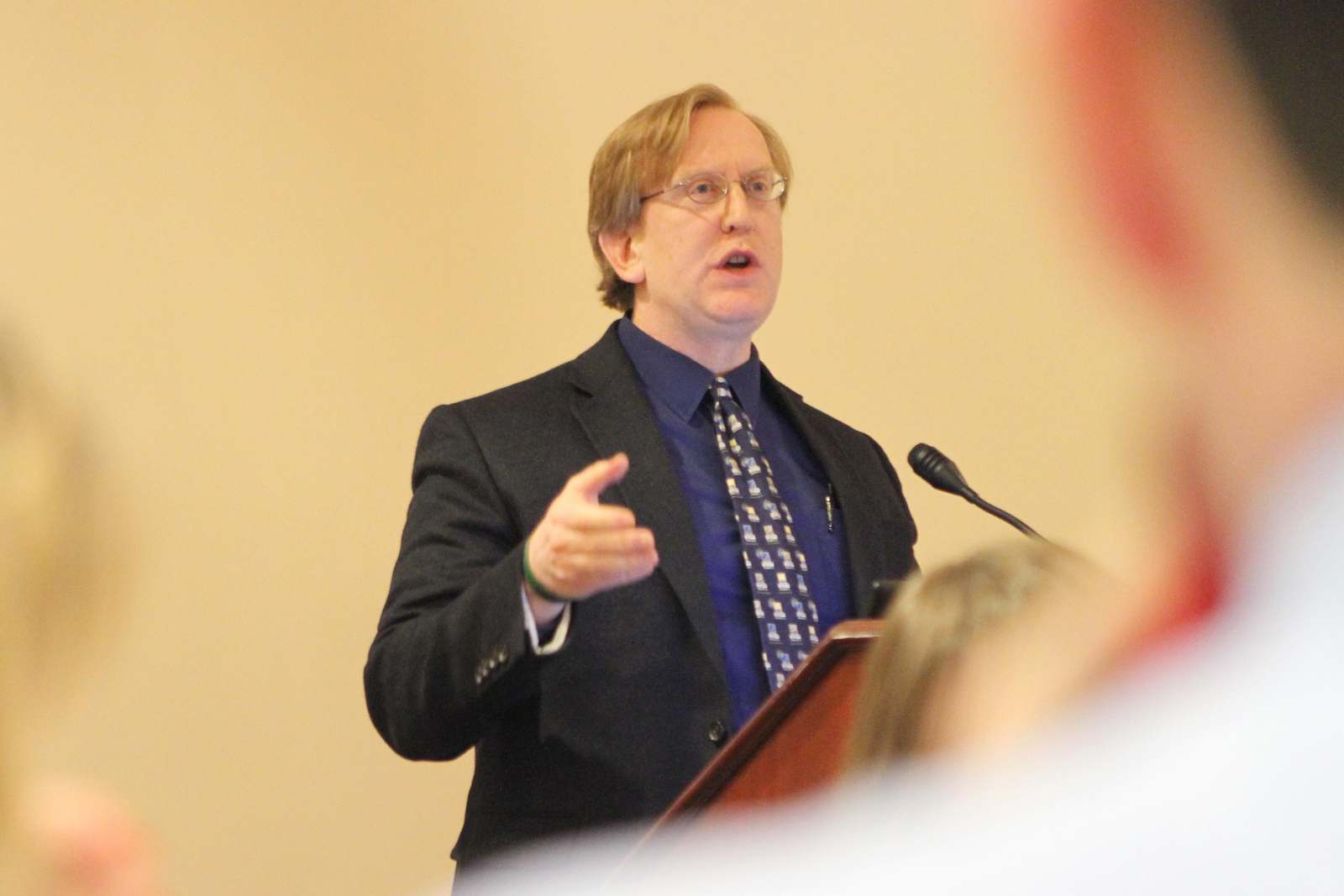Wally in the Lab
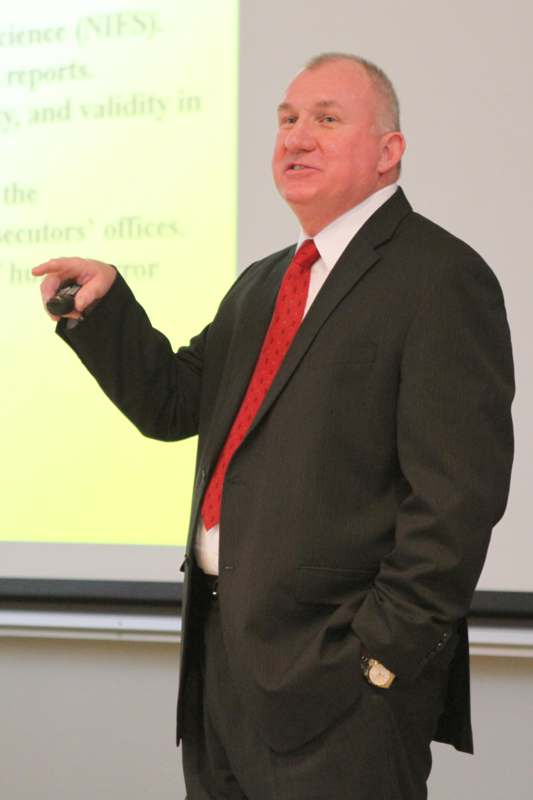
Michael Medler ’74, Director of the Indianapolis-Marion County Forensic Services Agency presented 'Forensic Science: the Truth that is Needed.' He describes forensic science as a 'victim of its own success' as his lab has more to do than they can ever get done. However, it is the duty to identify suspects AND exonerate the innocent that keeps him motivated. 'Wabash teaches you to ask question, to be unbiased, to collect information.'
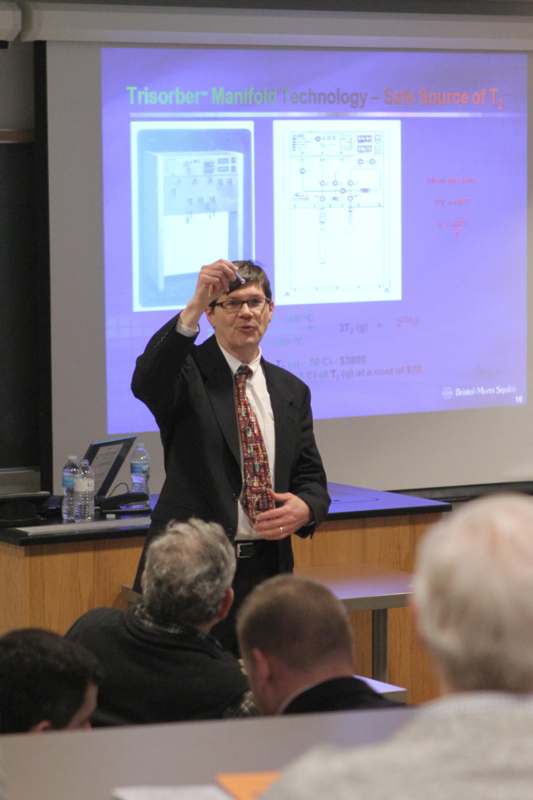
In the lab daily Maxwell works in very small quantities to answer questions regarding a potential drug's absorption, distribution throughout the body, metabolism of the drug once in the body, and its subsequent excretion. Maxwell exclaimed, 'Most of the projects I've worked on have failed.' However many others have led to medications on the market today including Eliquis, Onglyza, Farziga, Xigduo, Plavix, and Lyrica.
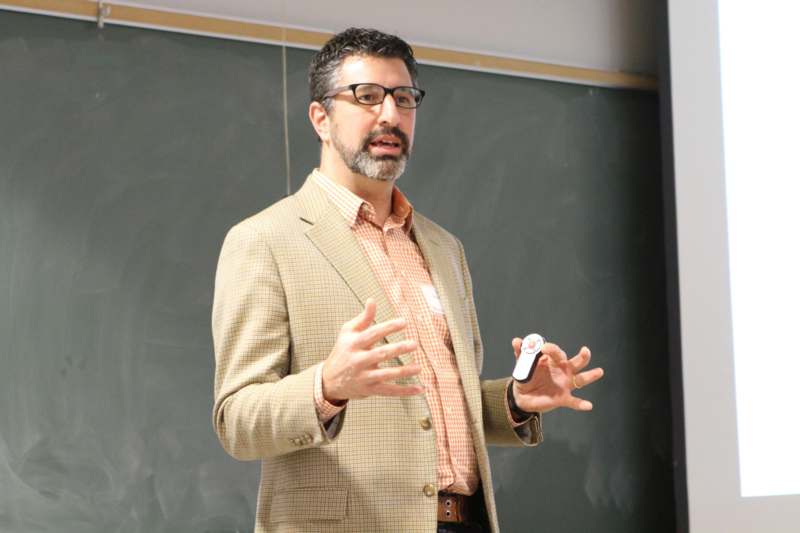
Matt Brown ’95, Director of Software Engineering at salesforce.com began his presentation laughing that at one time his dad was really nervous about him getting a liberal arts degree. But Brown credits his Wabash education with teaching him how to solve problems, how to fail, and gave him a foundation to breakdown problems and communicate with people who don't see it the same way he does.
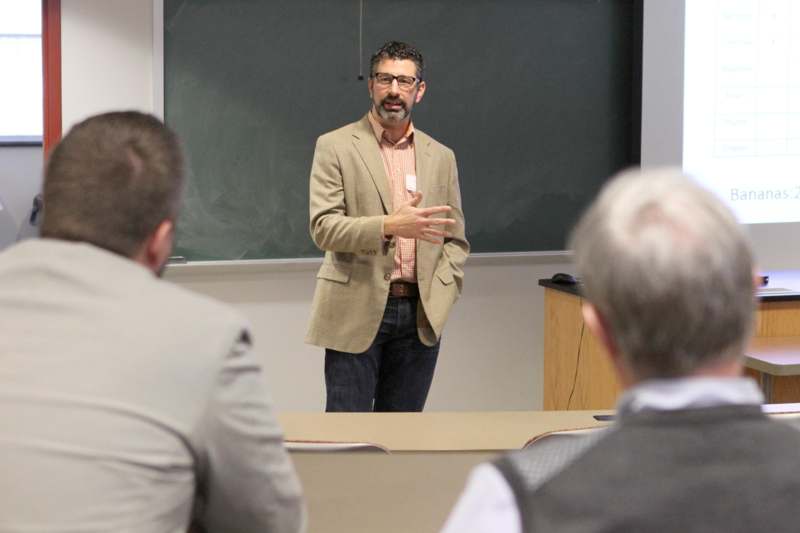
Brown now works with data sets 'too large to fit on an Excel spreadsheet.' His team works to write programs that make the large amounts of data manageable. 'I have the knowledge that allows me to hear what the marketers are saying and turn that into discrete work for our engineers.' And, of the 1 billion emails that were sent by retailers on Black Friday last year, 'I was responsible for that.'
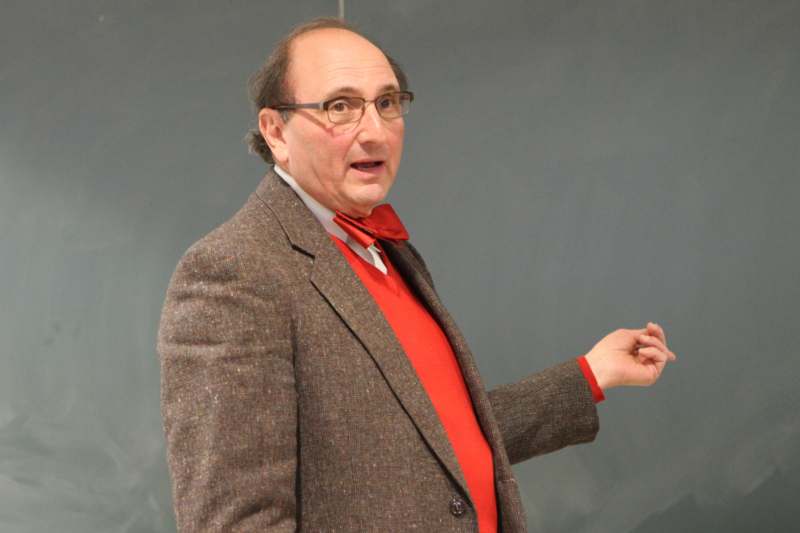
Born on campus before the Civil War, fraternities have long served as a laboratory where Wabash men have learned to be gentlemen and responsible citizens. Pactor quoted President Byron K. Trippet ’30 who said, 'The Wabash fraternities have grown up with the College. It is hard, if not impossible, to describe the character of Wabash without including a description of fraternity life.'
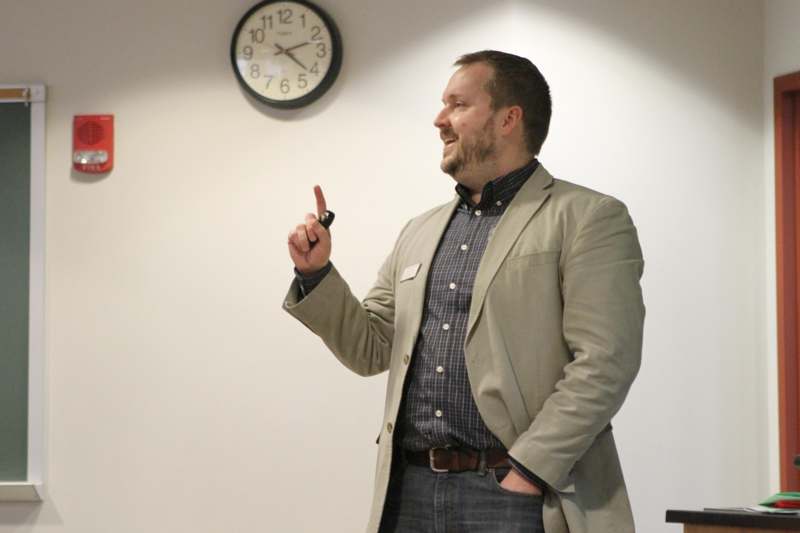
Dr. Joe Trebley ’01 is the head of start-up support and promotion at the IU Research and Technology Corp. In his presentation he described the 'interface between science and business.' Trebley describes his role as two-fold: 1. cheerleader and 2. translator. 'Science is hard and getting products to market is even harder. I have the knowledge and ability to work between two different cultures (science and business).'
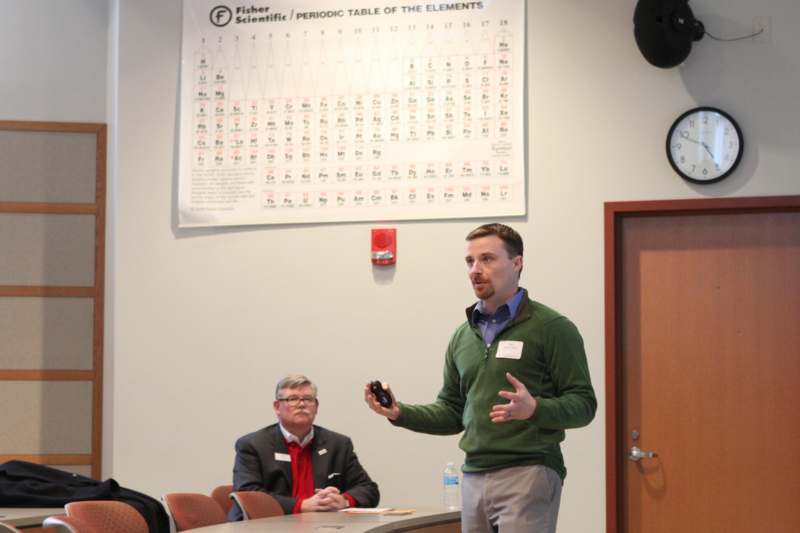
Both Matt Kriech ’00 and Damon Carl ’03 have their PhDs in chemistry. The two have recently teamed up to open Wabash Brewing in Indianapolis. In their presentation 'Wabash Brewing: Where Mad Science Meets Beer!' they described how the agility they gained as liberal arts graduates and the solid foundation in chemistry allowed them to successfully launch their business.
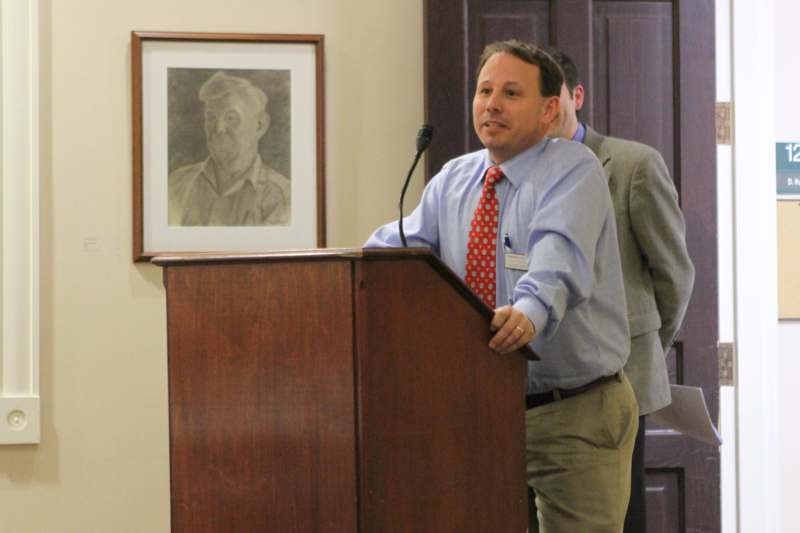
Dean of the College and Chemistry Professor Scott Feller offered a warm greeting to those who returned to campus on a cold day. 'Every year this symposium has brought together a fantastic group of people around a fantastic subject that we might informally share our lifelong love of learning that we instill in our graduates. To see them come back and see the ways they live that out is what gives all of us here at the College the energy and passion to continue our work day in and day out. So for all of you that have come back, thank you very much for the work that you do and for the pride that you allow those of us who work here to feel in our jobs and our institution.'
